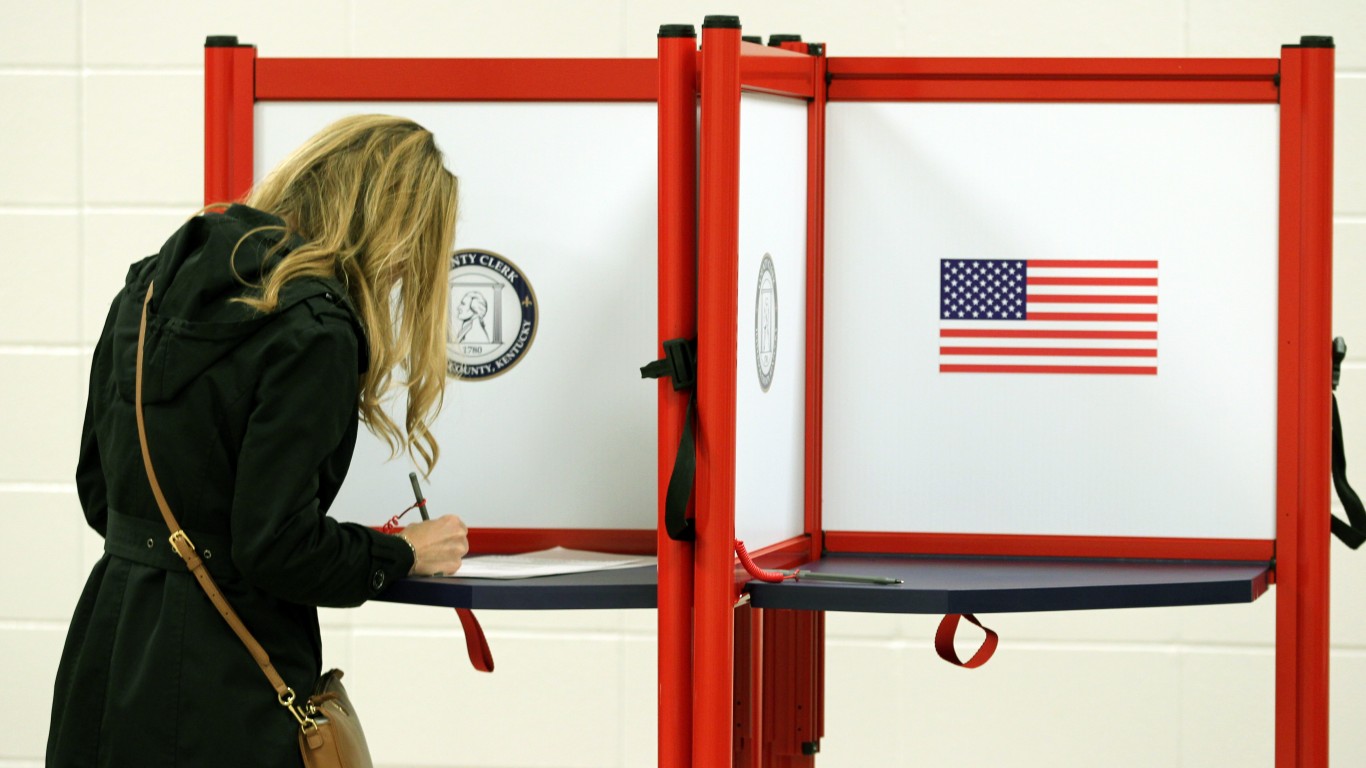
It has been a long time since Americans have faced significant shortages in the goods they normally buy. As Christmas approaches, it is clear that some traditional holiday foods are either not available or in low supply, and that this has driven prices of some items much higher than their prices last year. (The price of this household item is soaring.)
The list of shortages covers a wide variety of items people regularly buy with ease, everything from clothing to cars. More concerning perhaps is the growing list of drug shortages. (This is the most expensive drug in America.)
Two factors have triggered many of these shortages. One is a lack of workers in key industries. Another is clogged supply chains that, among other things, have left hundreds of cargo ships outside America’s biggest ports.
When it comes to drugs, it seems supply chain issues have been the culprit, at least recently. According to Healthline, “The disruption in the nation’s supply chain is reportedly creating shortages for several drugs, including those used to treat cancer and COVID-19.”
The Food and Drug Administration Drug Shortages list includes current and resolved drug shortages and discontinuations as reported to FDA. These are updated daily. The agency’s staff reviews manufacturer information and identifies shortages that have been resolved or those that persist.
According to CBS News, “The American Medical Association is calling the shortage an ‘urgent public health crisis’ that ‘threatens patient care and safety.’”
24/7 Wall St. reviewed the FDA drug shortages list (on Jan. 5) to find the drugs with the status “currently in shortage.” Sources for the drug’s use include MedlinePlus, DailyMed, Drugs.com, RxList, Cleveland Clinic, Mayo Clinic, Drugs@FDA, National Cancer Institute, and more. There may be more uses other than the ones noted.
These are the 115 drugs America is running short on (as of Jan. 5)
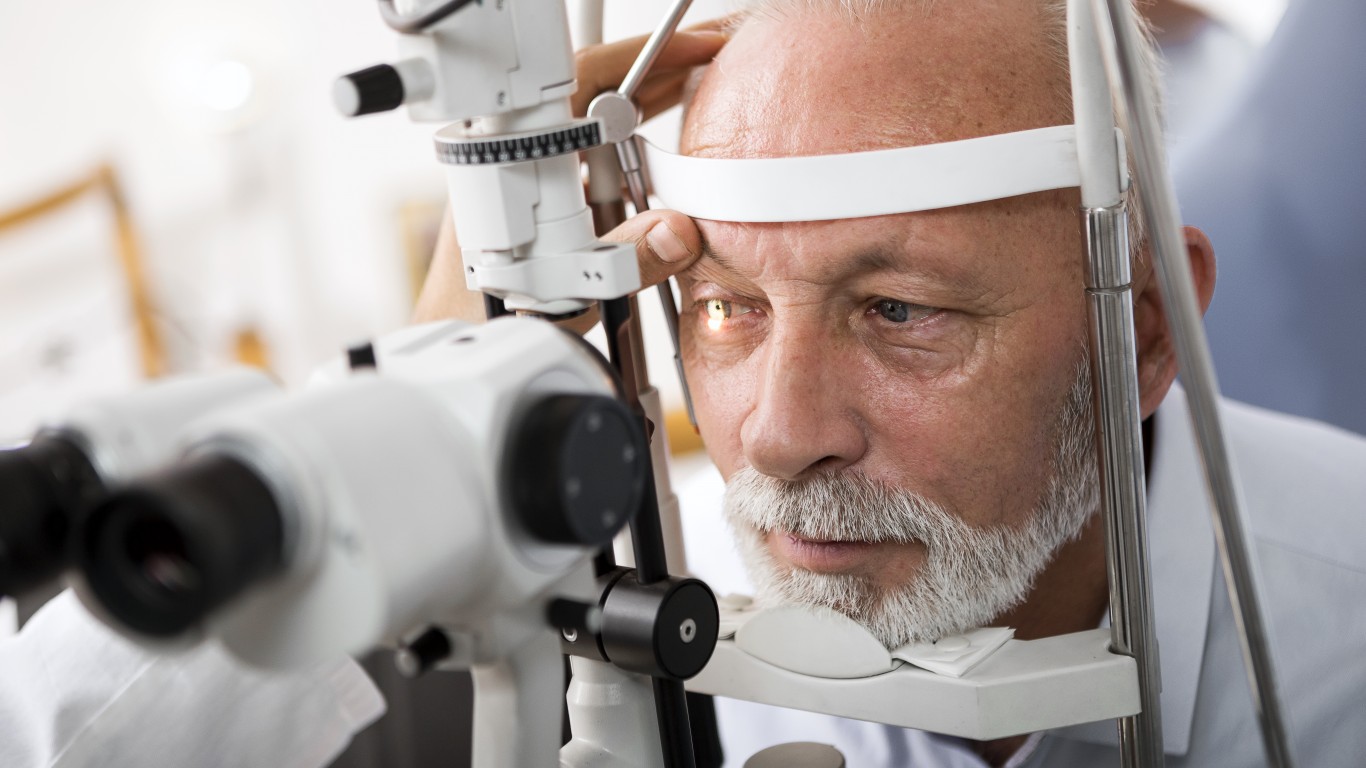
1. Acetazolamide injection
> Use: Used with other medications to treat glaucoma and some seizure disorders. May also be used to treat edema or swelling from heart failure or from other medicines.
[in-text-ad]
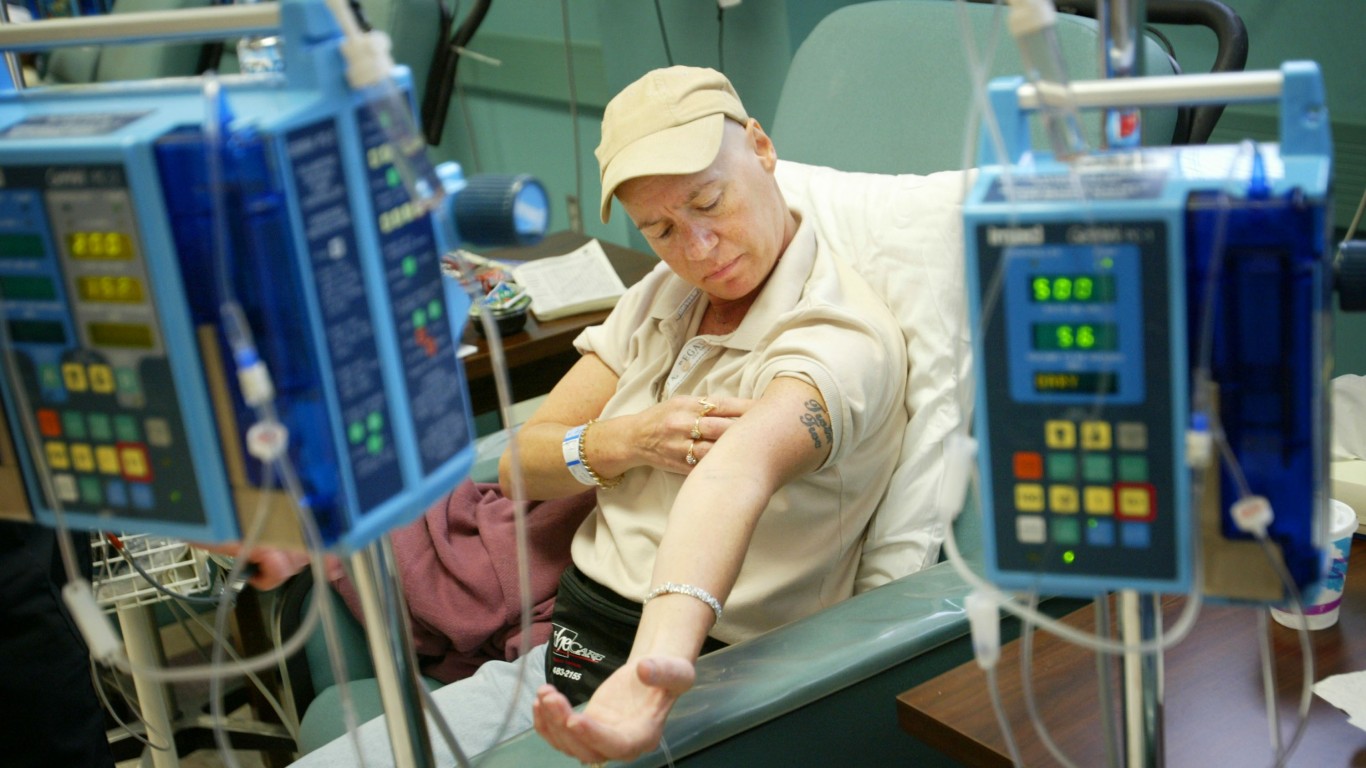
2. Amifostine injection
> Use: Used to prevent or lessen the kidney damage that can be caused by certain chemotherapy. Also used to prevent some side effects caused by radiation therapy to the head or neck.

3. Amino acids
> Use: These injections are used as nutritional support for patients who cannot or should not eat orally. They also support nitrogen loss.

4. Amoxapine tablets
> Use: Used to treat depression.

5. Amphetamine aspartate; amphetamine sulfate; dextroamphetamine saccharate; dextroamphetamine sulfate tablets
> Use: Used for the treatment of attention deficit hyperactivity disorder (ADHD) and may be used for narcolepsy (excessive daytime sleepiness).

6. Amphetamine oral suspension, extended release
> Use: Used for the treatment of ADHD.

7. Atropine sulfate injection
> Use: Used as a preoperative medication to reduce salivary and bronchial secretions. The drug is indicated for several other uses as well.
[in-text-ad-2]

8. Azacitidine for injection
> Use: This chemotherapy drug, used for treating myelodysplastic syndrome or some types of leukemia, reduces the growth of cancer cells and can suppress the immune system.
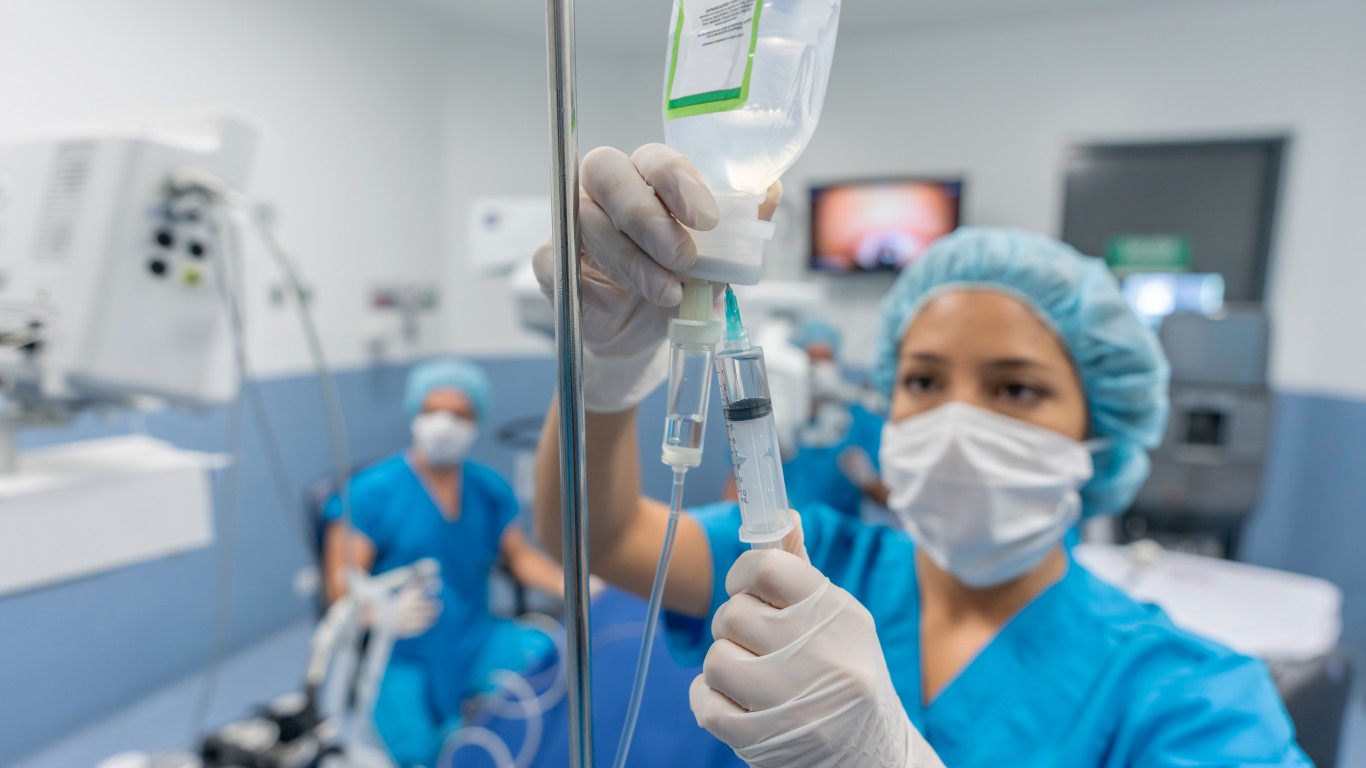
9. Bacteriostatic 0.9% sodium chloride injection
> Use: Used to dilute or dissolve drugs for intravenous, intramuscular or subcutaneous injection.
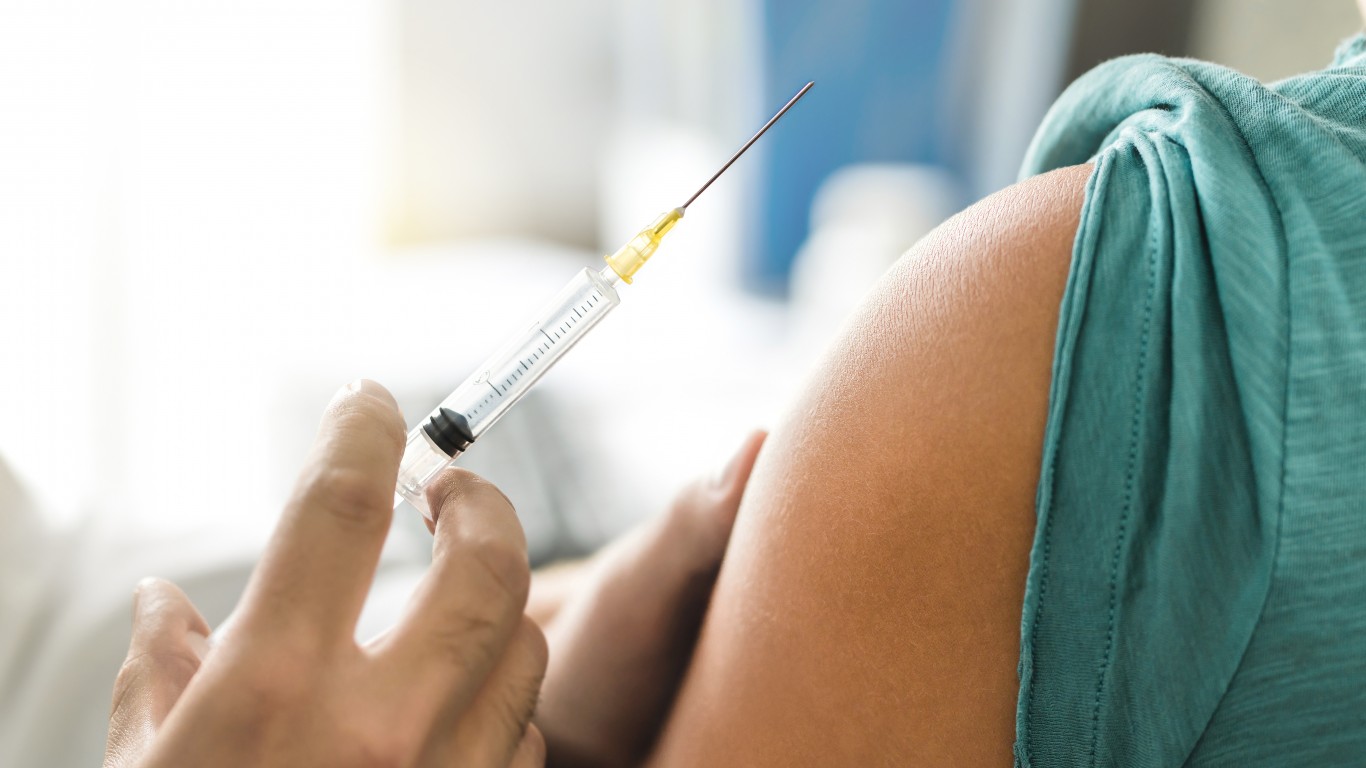
10. Bacteriostatic water for injection
> Use: Used to dilute or dissolve medications for injection.

11. Belatacept (Nulojix) lyophilized powder for injection
> Use: Used with other drugs to help prevent rejection of a kidney transplant.
[in-text-ad]
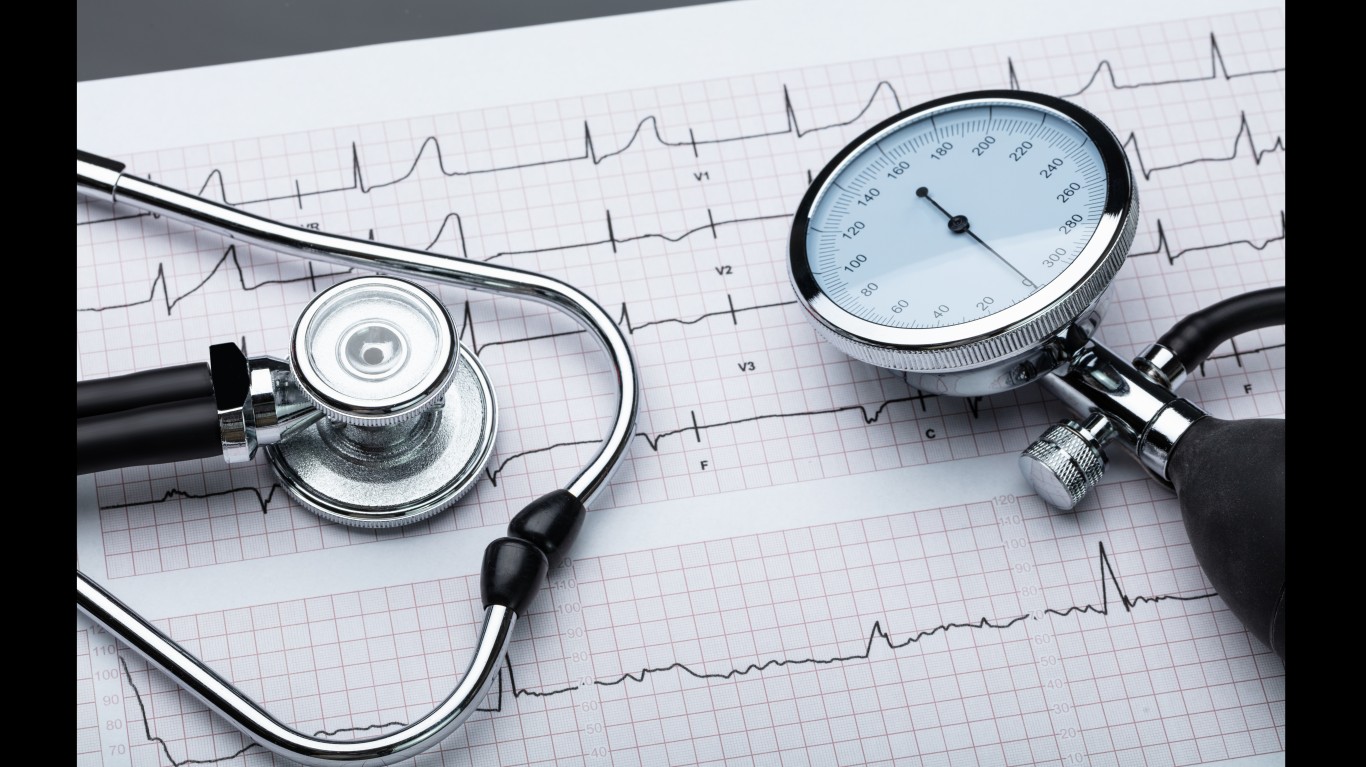
12. Bumetanide injection
> Use: This diuretic is used to treat high blood pressure and edema or swelling from heart, kidney, or liver disease.

13. Bupivacaine hydrochloride and epinephrine injection
> Use: This local anesthetic is used to numb an area of the body during surgery, diagnostic and therapeutic procedures, childbirth, or dental work.
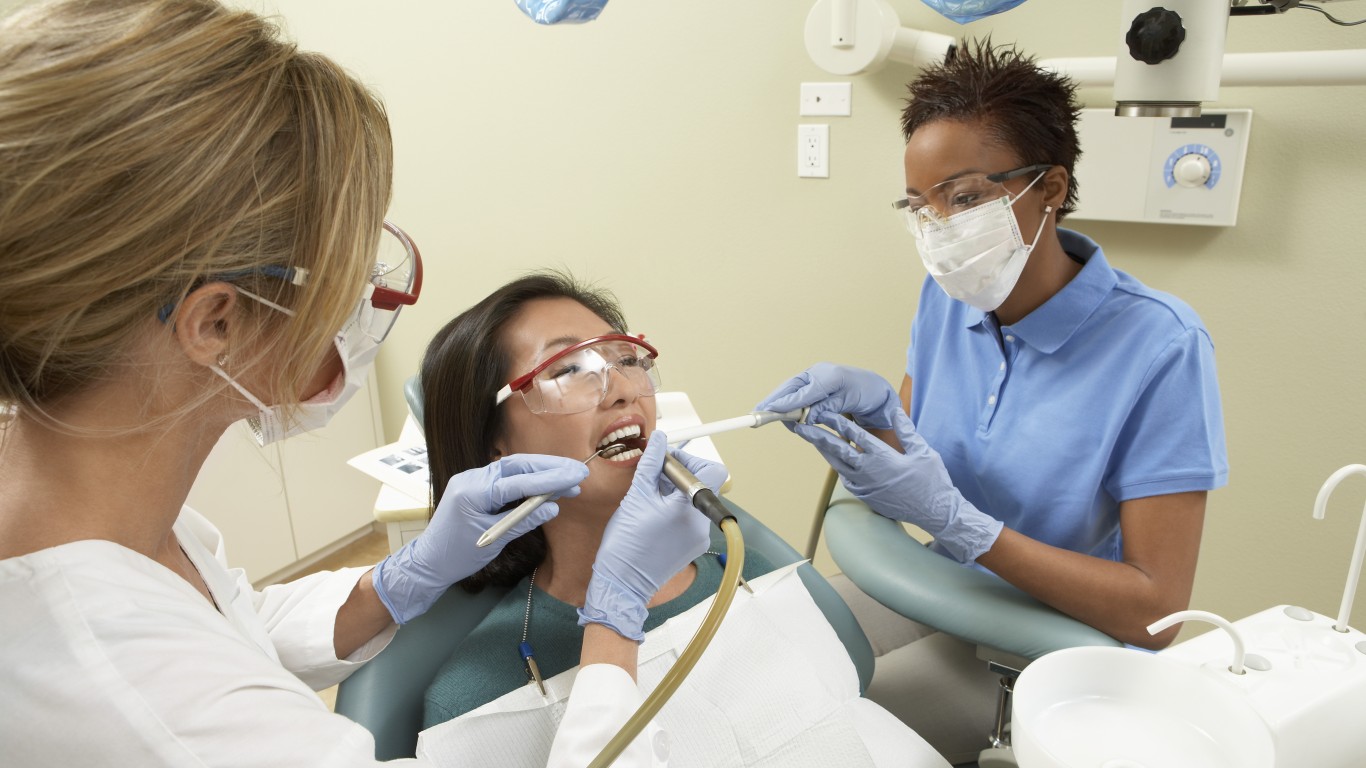
14. Bupivacaine hydrochloride injection
> Use: This local anesthetic is used to numb an area of the body during or after surgery or other procedures, childbirth, or dental work.

15. Calcium disodium versenate injection
> Use: The chelating agent can remove a heavy metal from the blood and be used to treat lead poisoning.

16. Calcium gluconate injection
> Use: Used to prevent or to treat low calcium levels.

17. Cefazolin injection
> Use: The antibiotic is used to treat certain kinds of bacterial infections in different parts of the body, including severe forms of infections. May also be used before surgery to prevent infection.
[in-text-ad-2]

18. Cefotaxime sodium injection
> Use: The antibiotic is used to treat certain bacterial infections, including pneumonia, gonorrhea, meningitis, and other infections. May also be used before surgery to prevent infection.

19. Cefotetan disodium injection
> Use: The antibiotic is used to treat or prevent certain kinds of bacterial infections that are caused by specific strains in different parts of the body.
20. Ceftazidime and avibactam (Avycaz) for injection, 2 grams/0.5 grams
Use: This combination antibacterial drug is used to treat complicated intra-abdominal infections, complicated urinary tract infections, and hospital-acquired bacterial pneumonia and ventilator-associated bacterial pneumonia.
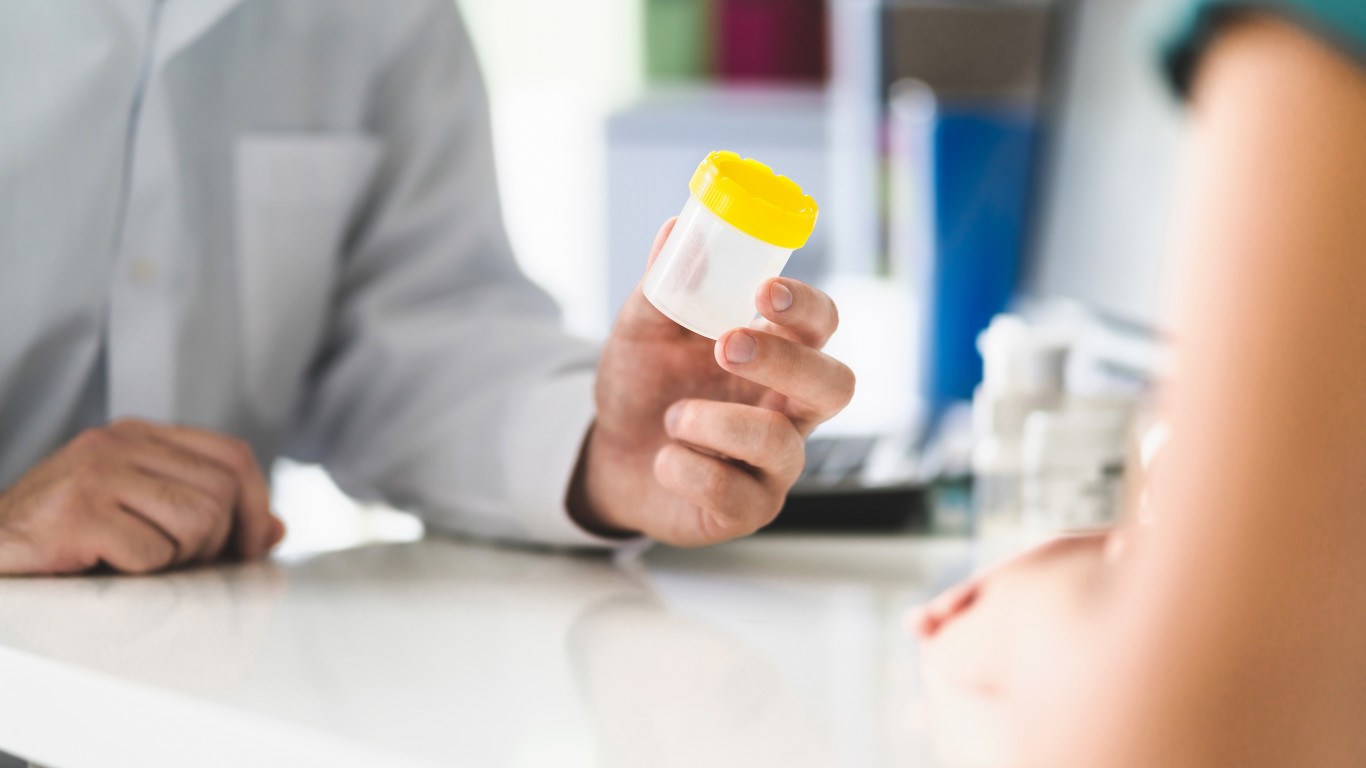
21. Ceftolozane and tazobactam (Zerbaxa) injection
> Use: The combination antibacterial is used to treat complicated intra-abdominal infections and complicated urinary tract infections.
[in-text-ad]

22. Chlordiazepoxide hydrochloride capsules
> Use: Used to treat anxiety, including before surgery, and to control agitation caused by alcohol withdrawal.

23. Chloroprocaine hydrochloride injection
> Use: The local anesthetic is used during surgical procedures and labor and delivery.
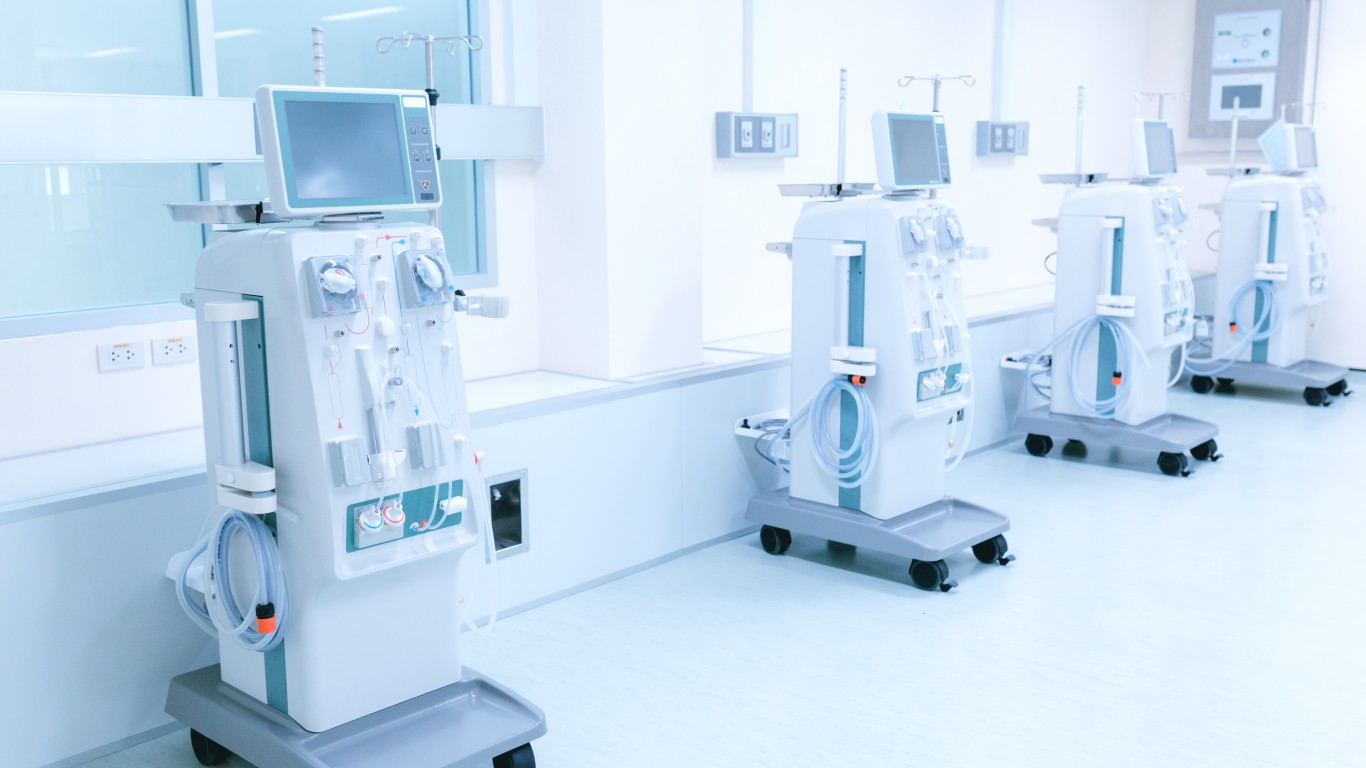
24. Continuous renal replacement therapy (CRRT) solutions
> Use: This type of dialysis — a therapy that filters and cleans the blood — is used continuously in critically ill patients with acute kidney injury.

25. Cortisone acetate tablets
> Use: This corticosteroid hormone is used in a wide variety of disorders, including arthritis, certain immune system disorders, certain skin and eye conditions, breathing problems, gastrointestinal diseases and disorders, and certain cancers.
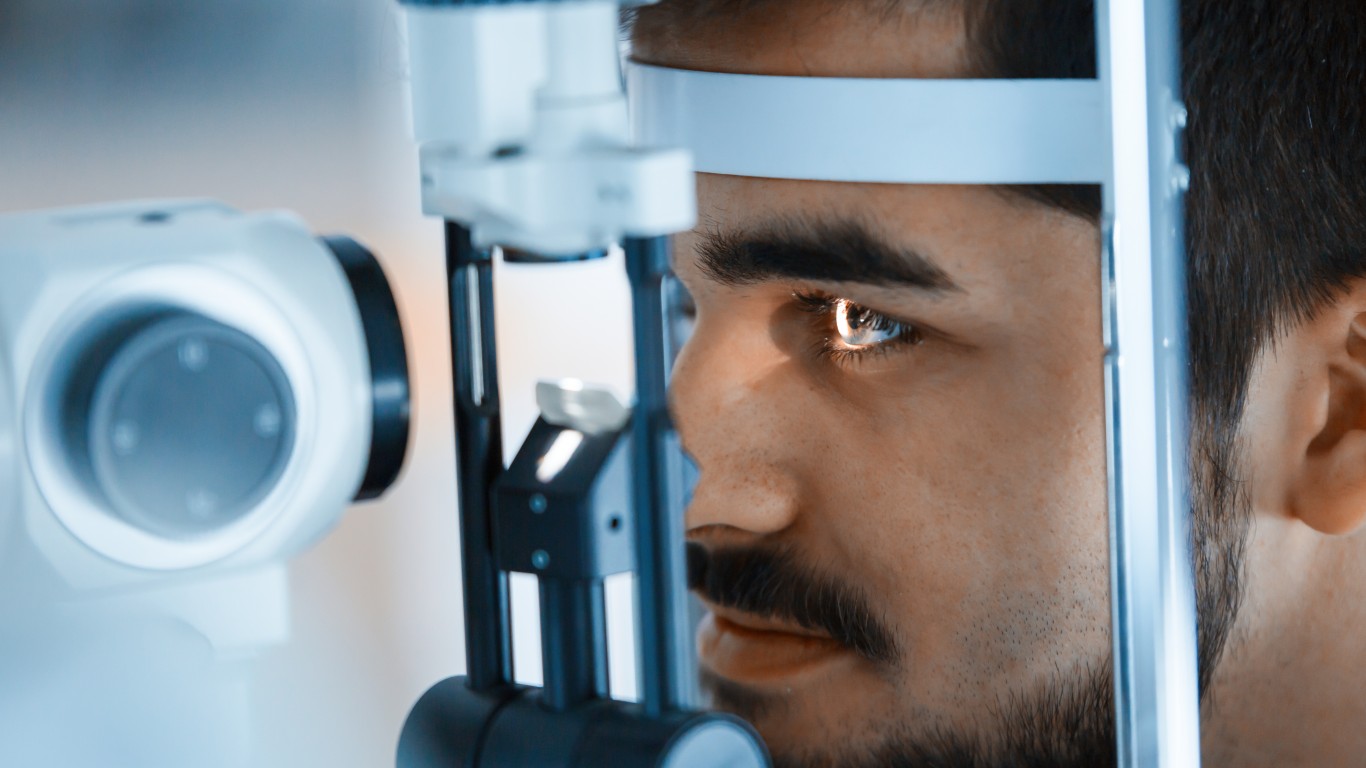
26. Cyclopentolate ophthalmic solution
> Use: Used to dilate the pupils and cause short-term paralysis of some eye muscles before eye examinations.

27. Cysteamine hydrochloride ophthalmic solution
> Use: Used to treat cystine crystal accumulation in the cornea of patients with cystinosis, a disease caused by an abnormal buildup of a certain amino acid called cystine.
[in-text-ad-2]

28. Cytarabine injection
> Use: This chemotherapy drug is used alone or with other chemotherapy drugs to treat certain types of leukemia and meningeal leukemia.

29. Dacarbazine injection
> Use: This chemotherapy drug is used to treat malignant melanoma (a type of skin cancer). Also used in combination with other medications to treat Hodgkin’s lymphoma.
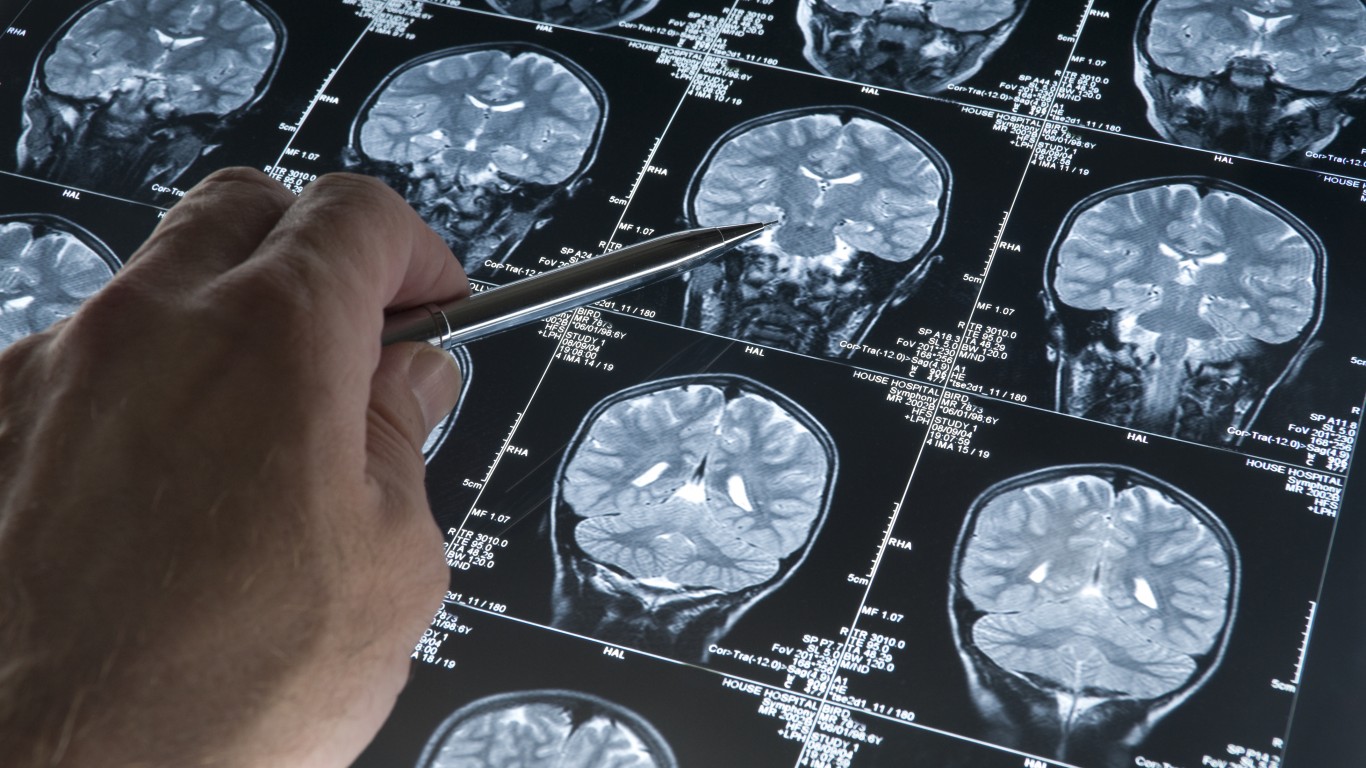
30. Desmopressin acetate nasal spray
> Use: This hormone is used as an antidiuretic in patients with central cranial diabetes insipidus, patients after a head injury or some surgeries, and patients with nocturnal polyuria. Also used to treat bleeding in patients with hemophilia A or von Willebrand disease.

31. Dexamethasone sodium phosphate injection
> Use: This corticosteroid is used to relieve inflammation in various parts of the body. Conditions it is used for include asthma, allergies, and arthritis as well as blood disorders, certain bowel disorders, certain cancers, and diseases of the adrenal glands.
[in-text-ad]
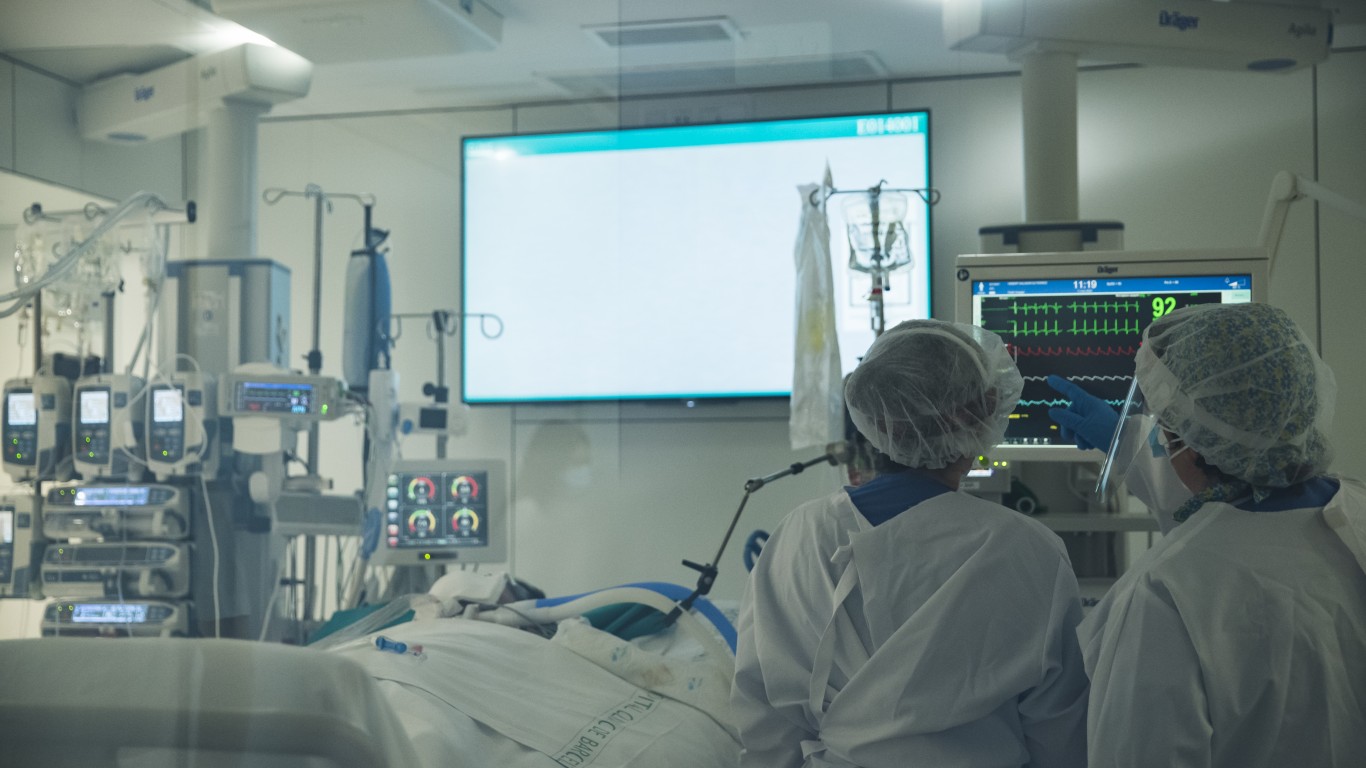
32. Dexmedetomidine injection
> Use: This sedative is used in intensive care settings for sedation of initially intubated and mechanically ventilated patients. It is also used for sedation prior to surgery and other procedures.
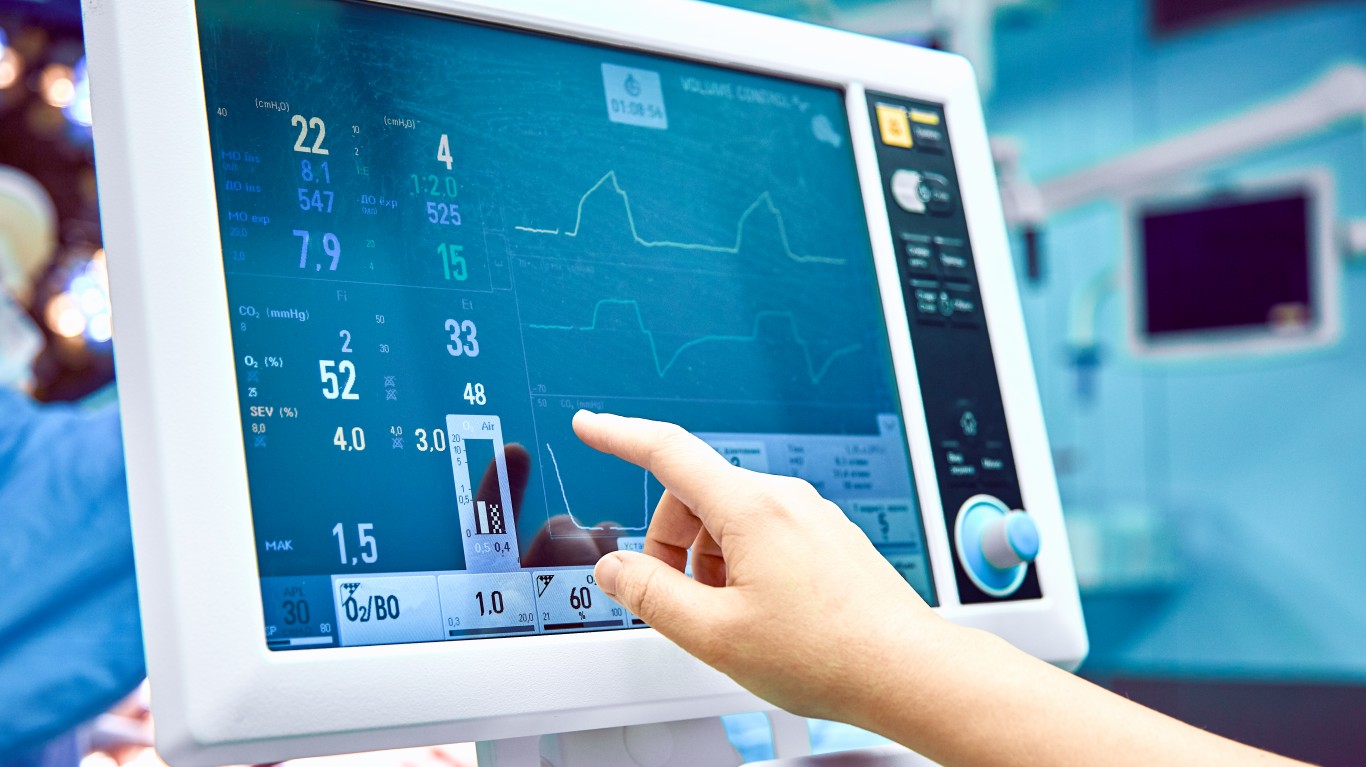
33. Digoxin injection
> Use: Used to treat congestive heart failure and heart rhythm problems.
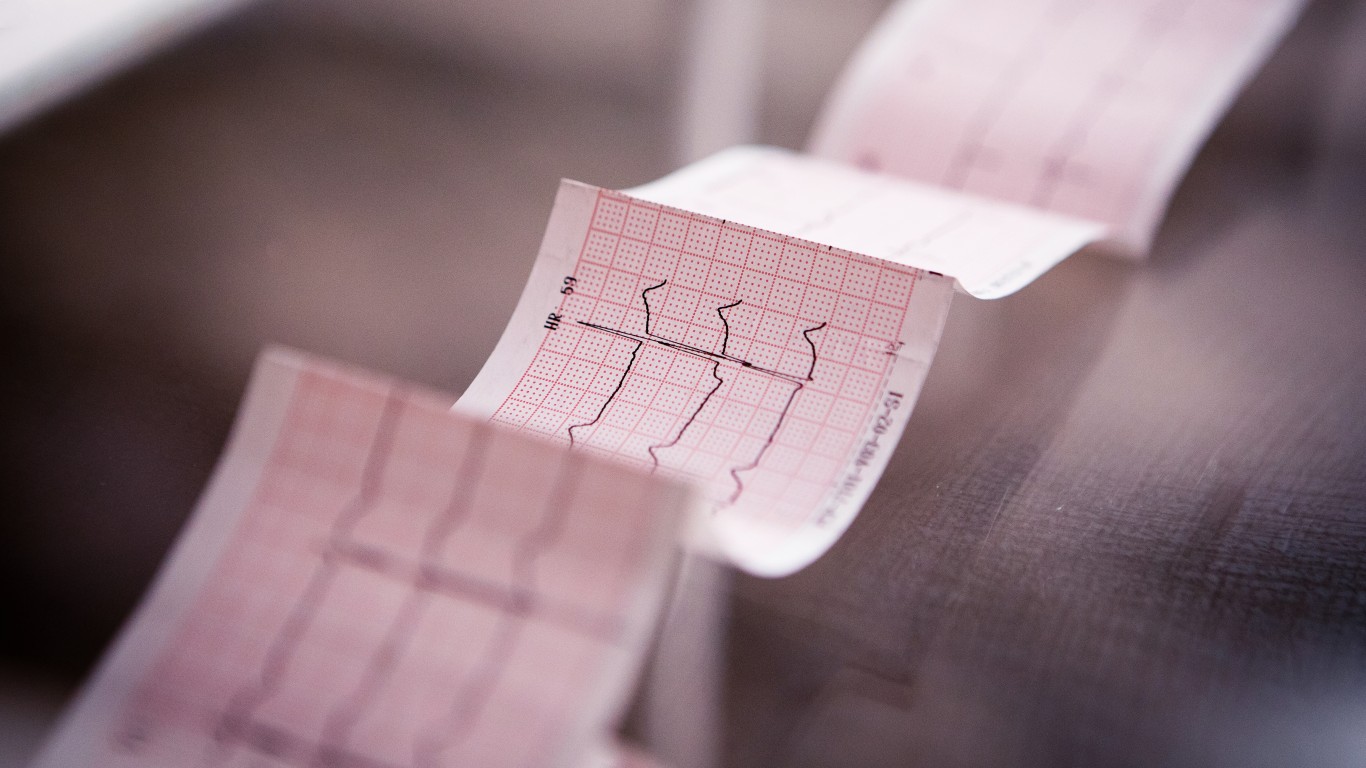
34. Diltiazem hydrochloride injection
> Use: This calcium-channel blocker affects the amount of calcium found in the heart and muscle cells. Used for temporary control of rapid ventricular rate in atrial fibrillation or atrial flutter. Also used for paroxysmal supraventricular tachycardia.

35. Disopyramide phosphate (Norpace) capsules
> Use: This antiarrhythmic drug is used to treat life-threatening irregular heartbeat patterns. Also helps to slow rapid heartbeats.

36. Dobutamine hydrochloride injection
> Use: This medicine helps increase the strength of the heart muscle. Used short-term to treat cardiac decompensation due to weakened heart muscle.

37. Dopamine hydrochloride injection
> Use: This medicine can improve the heart’s pumping strength and raise blood pressure. It is used to treat conditions in patients in shock due to heart attack, trauma, surgery, heart failure, kidney failure, and other serious conditions.
[in-text-ad-2]
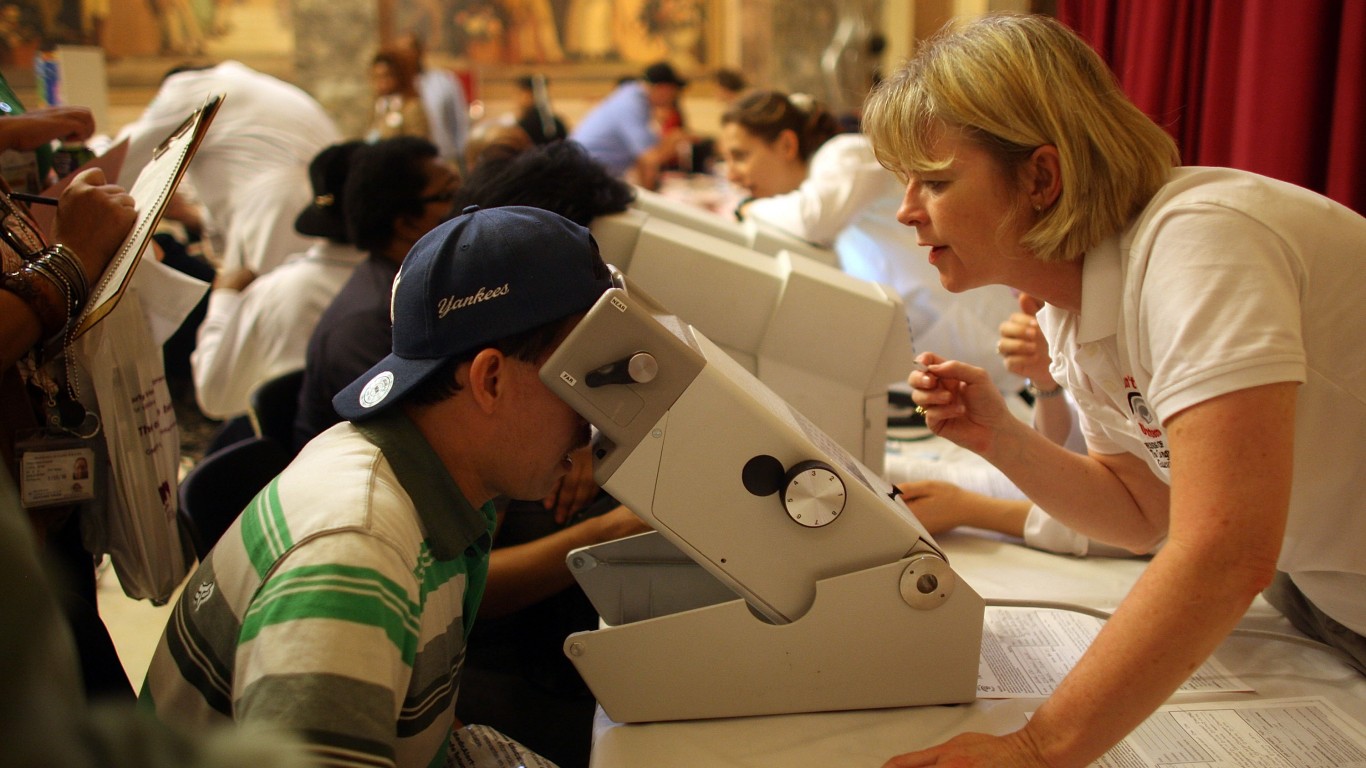
38. Echothiophate iodide (phospholine iodide) ophthalmic solution
> Use: This medicine decreases the amount of fluid within the eye and affects certain eye muscles. It is used to treat glaucoma by lowering the pressure inside the eye and to treat a condition that causes the eyes to cross.

39. Enalaprilat injection
> Use: Used to treat high blood pressure when patients can’t take the drug orally.

40. Epinephrine injection, 0.1 mg/ml
> Use: Used to treat severe allergic reactions as well as acute asthmatic attacks. Also used to treat certain cardiac arrest and attacks.
41. Epinephrine injection, auto-injector
> Use: The EpiPen is used for the emergency treatment of severe allergic reactions. It can be self-injected.
[in-text-ad]

42. Fentanyl citrate (Sublimaze) injection
> Use: This potent narcotic analgesic is used to treat pain before, during, and after surgery. This medicine is also used before, with, and in place of other medicines for sleep during a medical procedure.

43. Floxuridine for injection
> Use: This chemotherapy drug is used to treat certain types of gastrointestinal cancer that have spread to the liver.

44. Fluvoxamine er capsules
> Use: Used to treat obsessive-compulsive disorder.

45. Furosemide injection
> Use: This diuretic is used to treat edema (excess fluid held in body tissues) caused by such conditions as heart failure, pulmonary edema, kidney, and liver disease, and others by helping the body the kidneys to get rid of unneeded water and salt from the body

46. Gemifloxacin mesylate (Factive) tablets
> Use: This antibiotic is used for the treatment of bronchitis and pneumonia caused by certain bacteria strains.

47. Gentamicin sulfate injection
> Use: This antibiotic is used to treat serious bacterial infections in many different parts of the body, often serious infections for which other medicines may not work.
[in-text-ad-2]

48. Guanfacine hydrochloride tablets
> Use: This medication reduces nerve impulses in the heart and blood vessels and is used to treat high blood pressure. The extended release tablets are used to treat ADHD.

49. Heparin sodium and sodium chloride 0.9% injection
> Use: This medication is used as an anticoagulant to keep IV catheters open and flowing freely.
50. Hydrocortisone tablets
> Use: This corticosteroid relieves inflammation (swelling, heat, redness, and pain) and is used to treat certain forms of arthritis; skin, blood, kidney, eye, thyroid, and intestinal disorders; severe allergies; and asthma. It is also used to treat certain types of cancer.
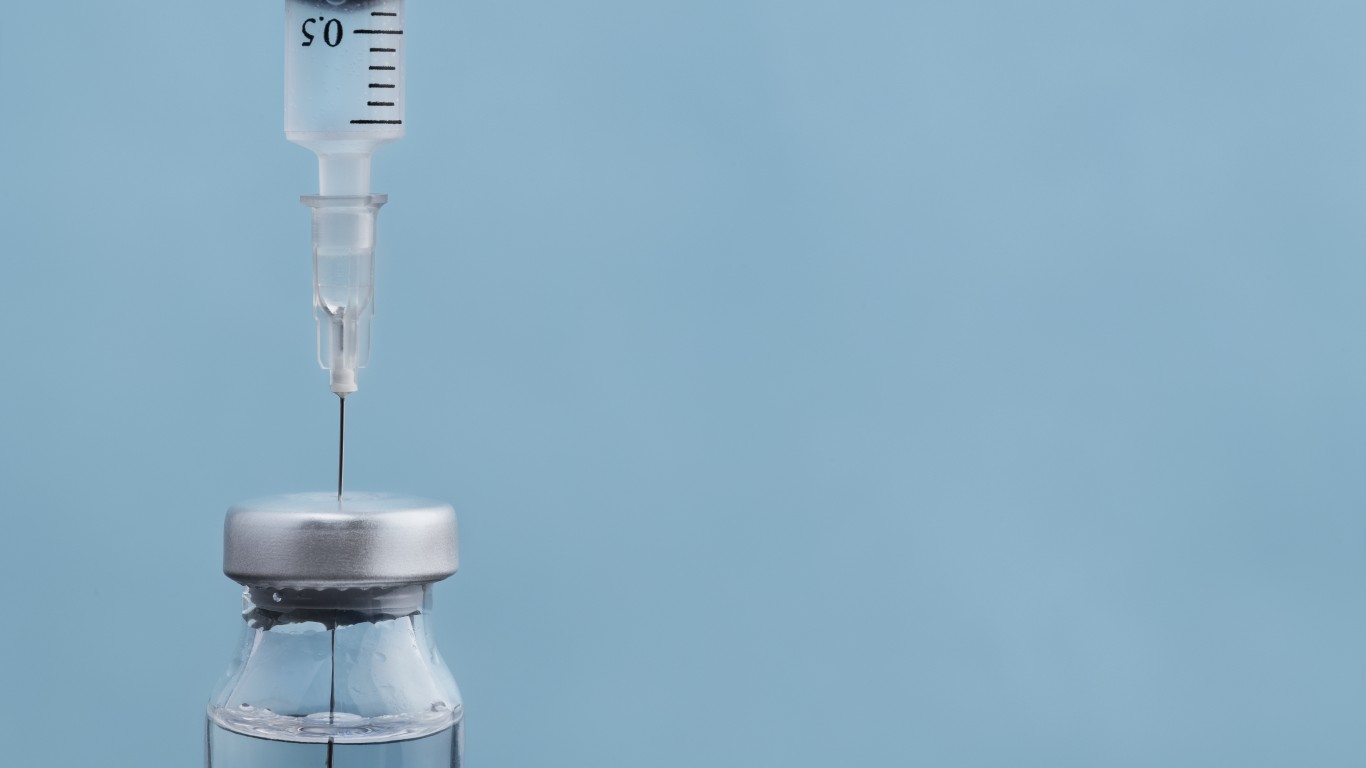
51. Hydromorphone hydrochloride injection
> Use: This narcotic analgesics is used to relieve pain severe enough to require an opioid. It works by changing the way the brain and nervous system respond to pain.
[in-text-ad]

52. Hydroxocobalamin injection
> Use: This form of vitamin B12 is used to treat people with low levels of vitamin B12 or those who can not absorb vitamin B12. It is also used as an antidote to treat cyanide poisoning.

53. Hydroxypropyl (Lacrisert) cellulose ophthalmic insert
> Use: This long-acting artificial tears insert is used to treat moderate to severe dry eye syndromes.
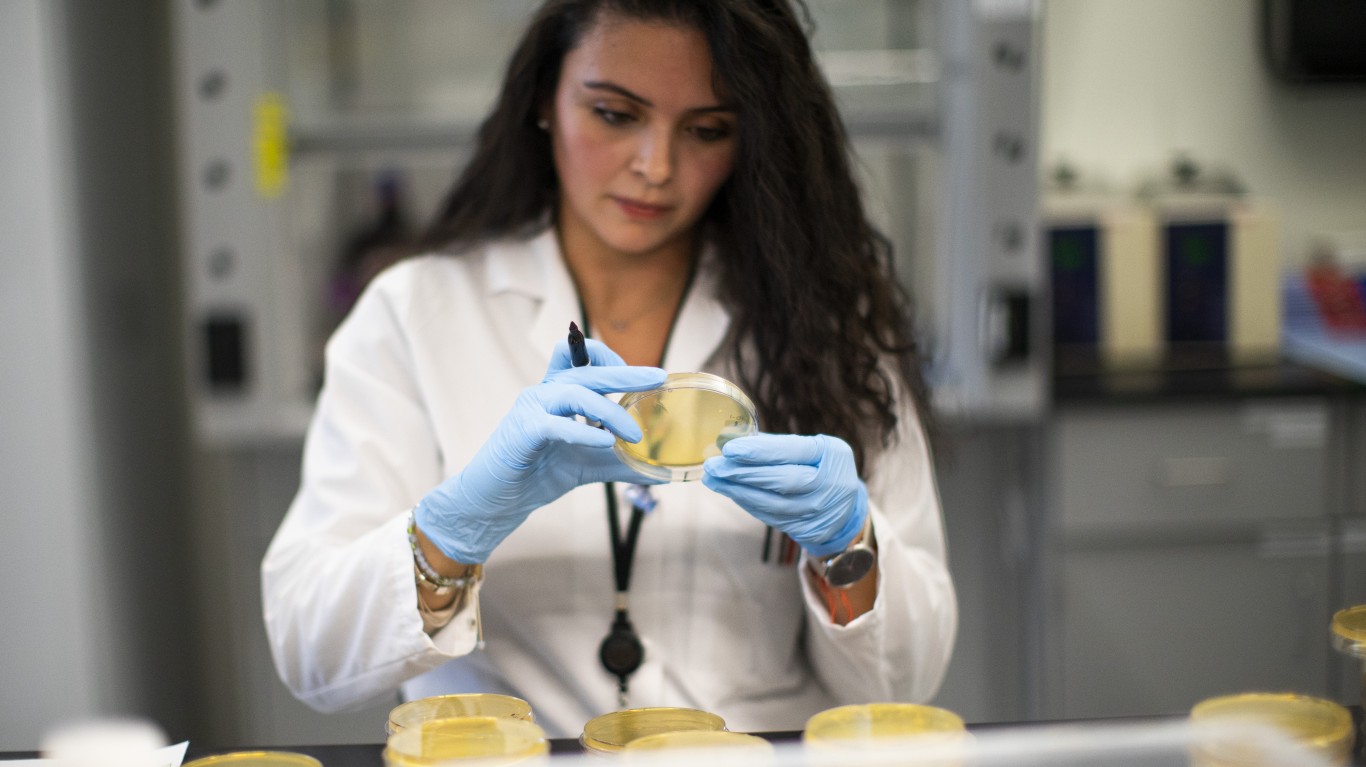
54. Imipenem and cilastatin for injection
> Use: This combination injection is used to treat certain serious bacterial infections in the heart, lungs, bladder, kidneys, skin, blood, bones, joints, stomach, or female reproductive organs.
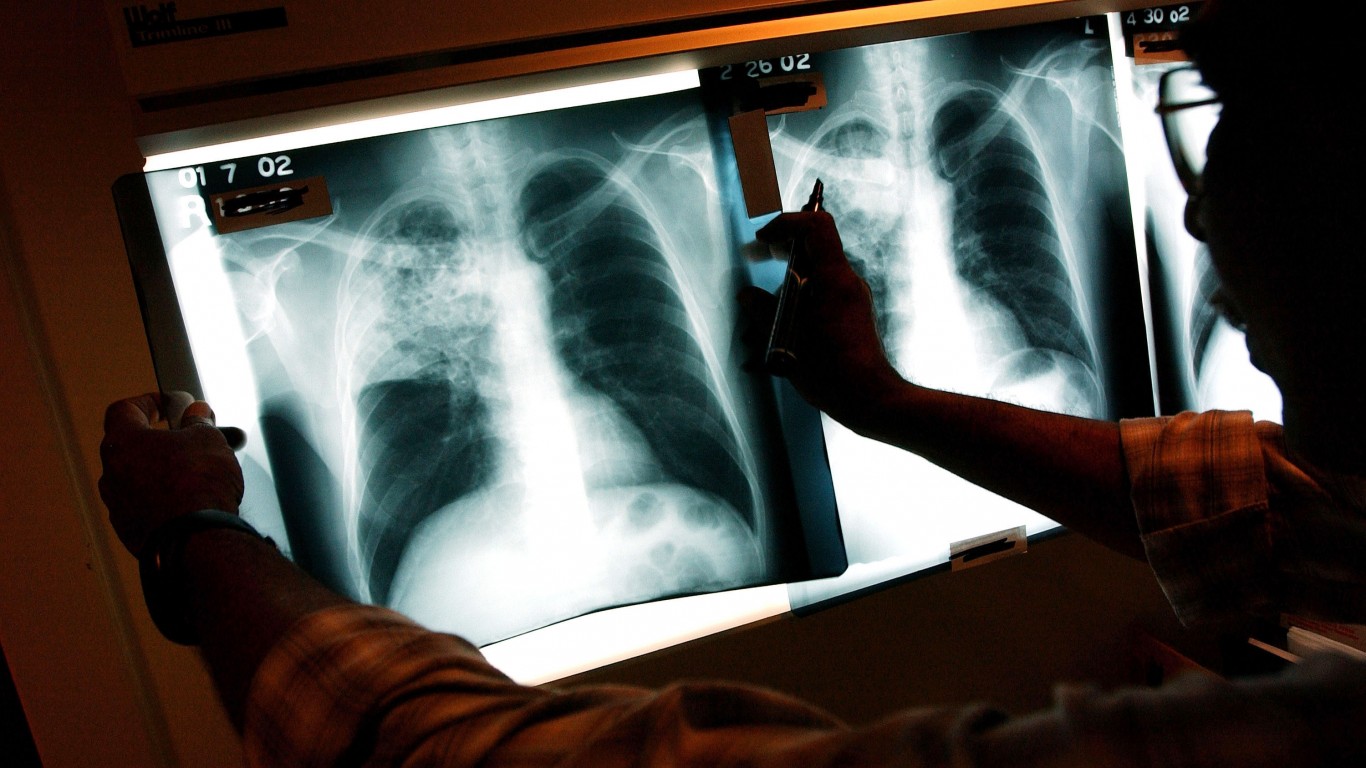
55. Isoniazid injection
> Use: Used to prevent or to treat tuberculosis.

56. Ketamine injection
> Use: This general anesthetic is used to produce loss of consciousness before diagnostic and surgical procedures.

57. Ketoprofen capsules
> Use: This extended release of this nonsteroidal anti-inflammatory drug (NSAID) is used to treat pain or inflammation caused by arthritis. The regular capsule is also used to treat mild to moderate pain, or menstrual pain.
[in-text-ad-2]

58. Ketorolac tromethamine injection
> Use: This medication is used to manage moderately severe pain that requires analgesia at the opioid level, usually after surgery, for up to five days.
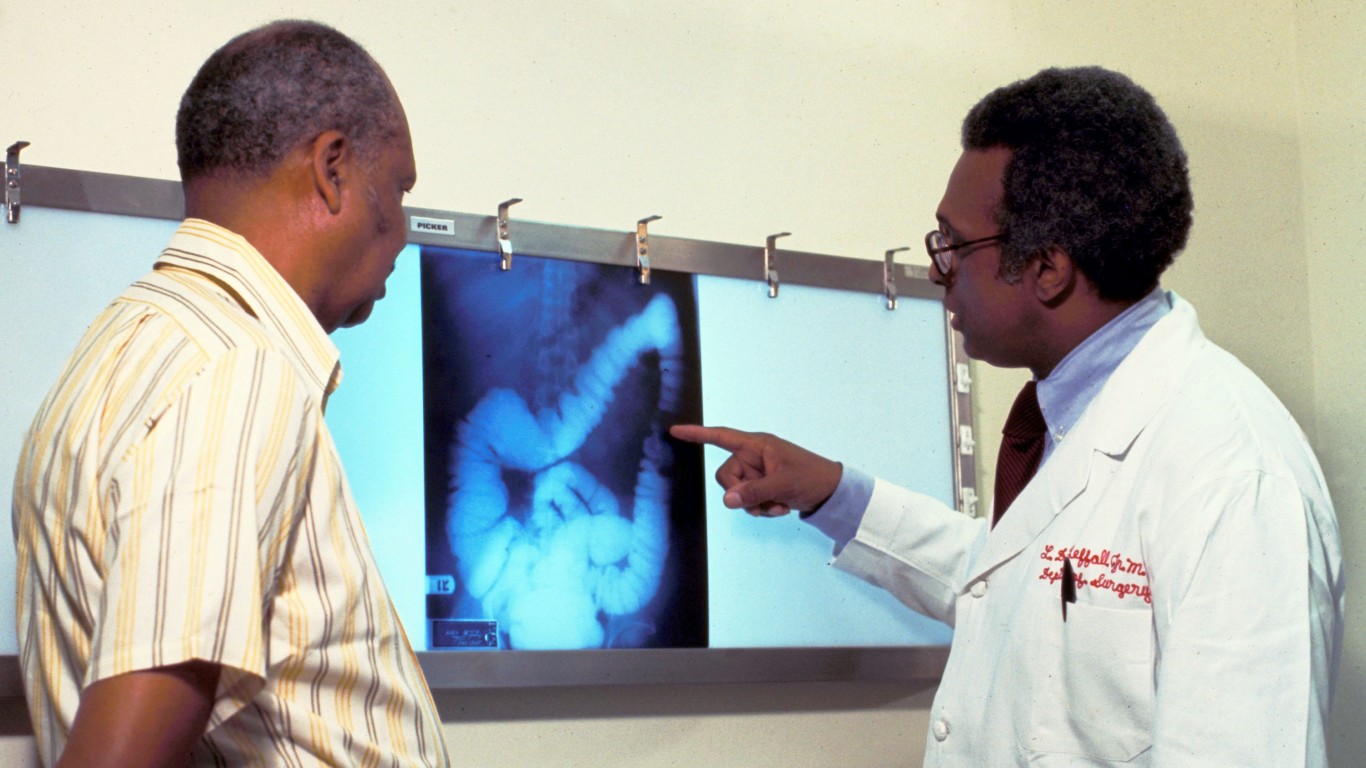
59. Leucovorin calcium lyophilized powder for injection
> Use: Given to cancer patients receiving a particular chemotherapy drug to treat its toxic effects. It is also used to treat megaloblastic anemia as palliative treatment of colorectal cancer.

60. Leuprolide acetate injection
> Use: Used in men to treat the symptoms associated with advanced prostate cancer (but not the cancer). It is also used in children to treat a puberty-related condition and in women to treat endometriosis.
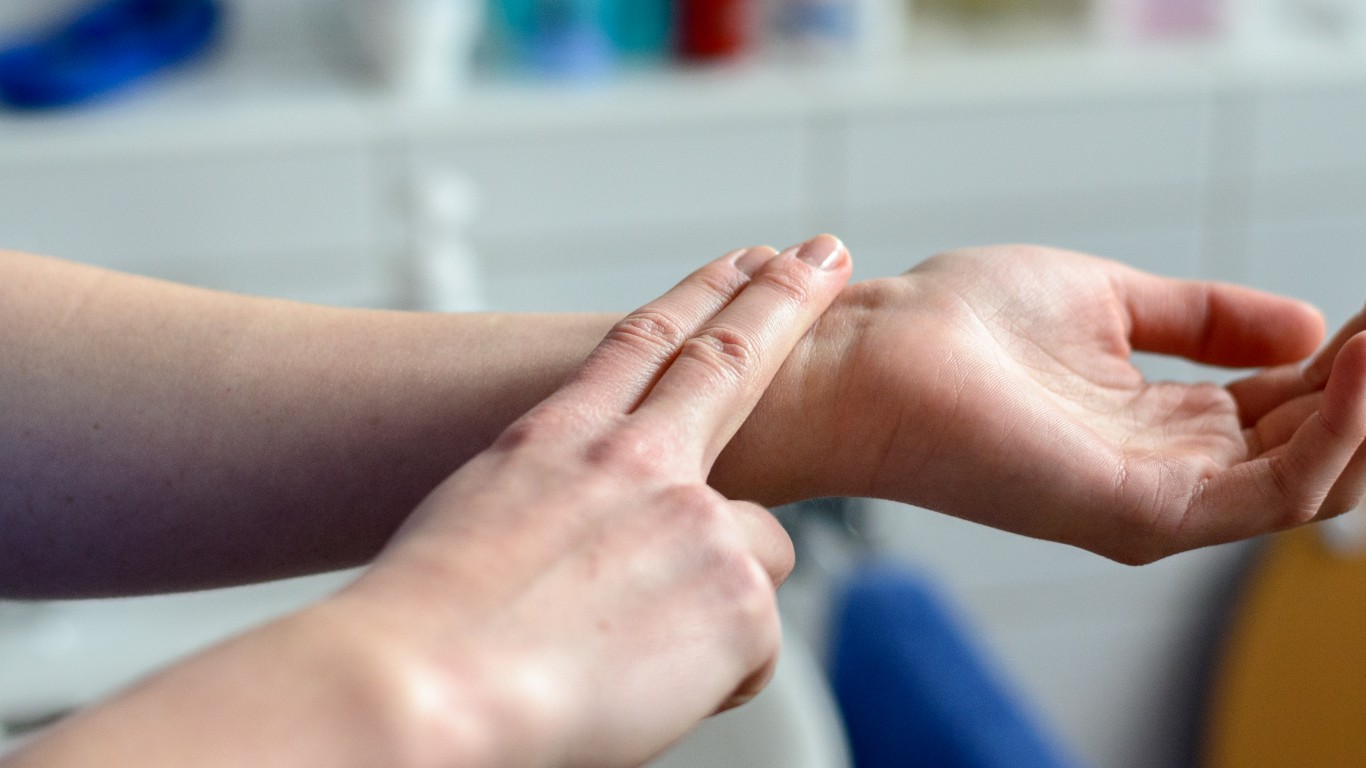
61. Lidocaine hydrochloride (Xylocaine) and dextrose injection solution-premix bags
> Use: This combination is used to treat irregular heartbeat.
[in-text-ad]

62. Lidocaine hydrochloride (Xylocaine) injection
> Use: This local anesthesia is used to numb an area ahead of surgeries, needle punctures, or insertion of a catheter or breathing tube. Can also be given as an epidural (spinal block) to reduce discomfort during labor.
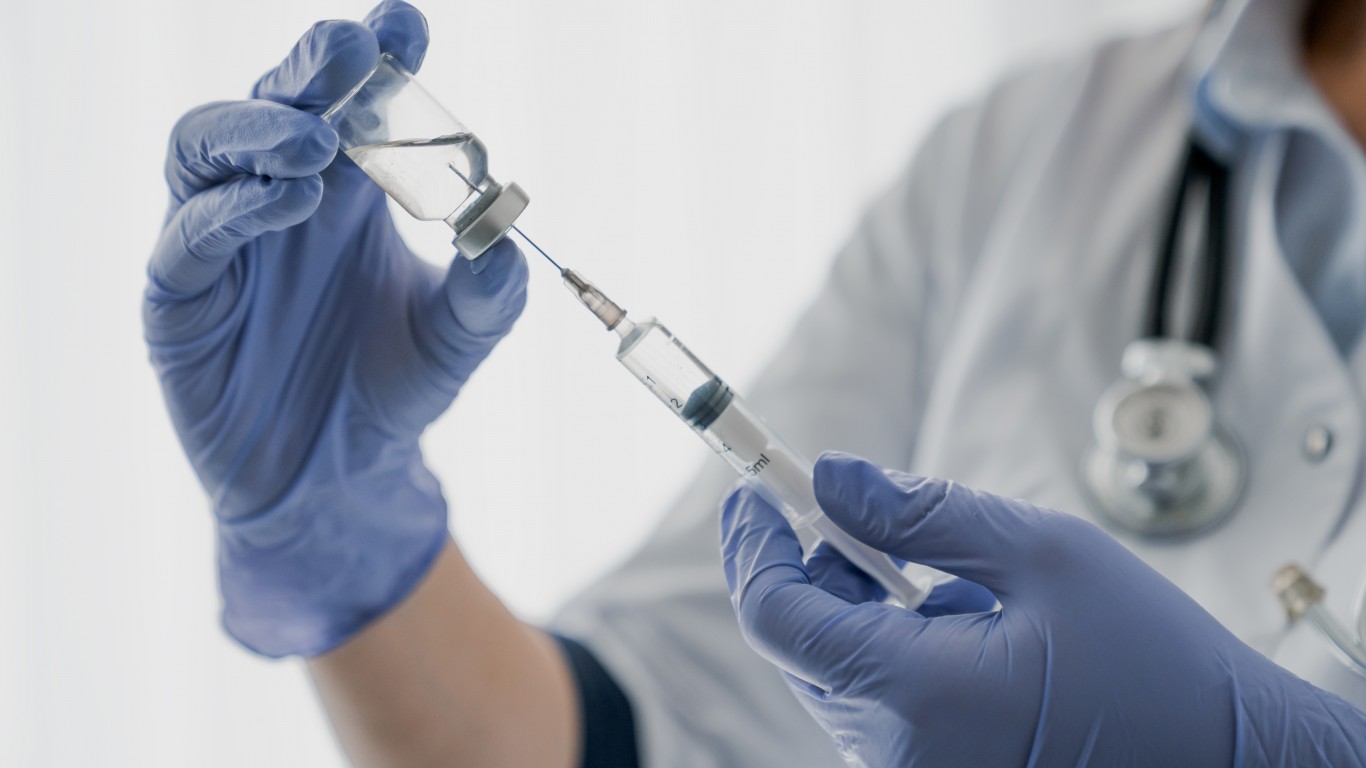
63. Lidocaine hydrochloride (Xylocaine) injection with epinephrine
> Use: This local anesthesia combination is used in patients having certain medical procedures.
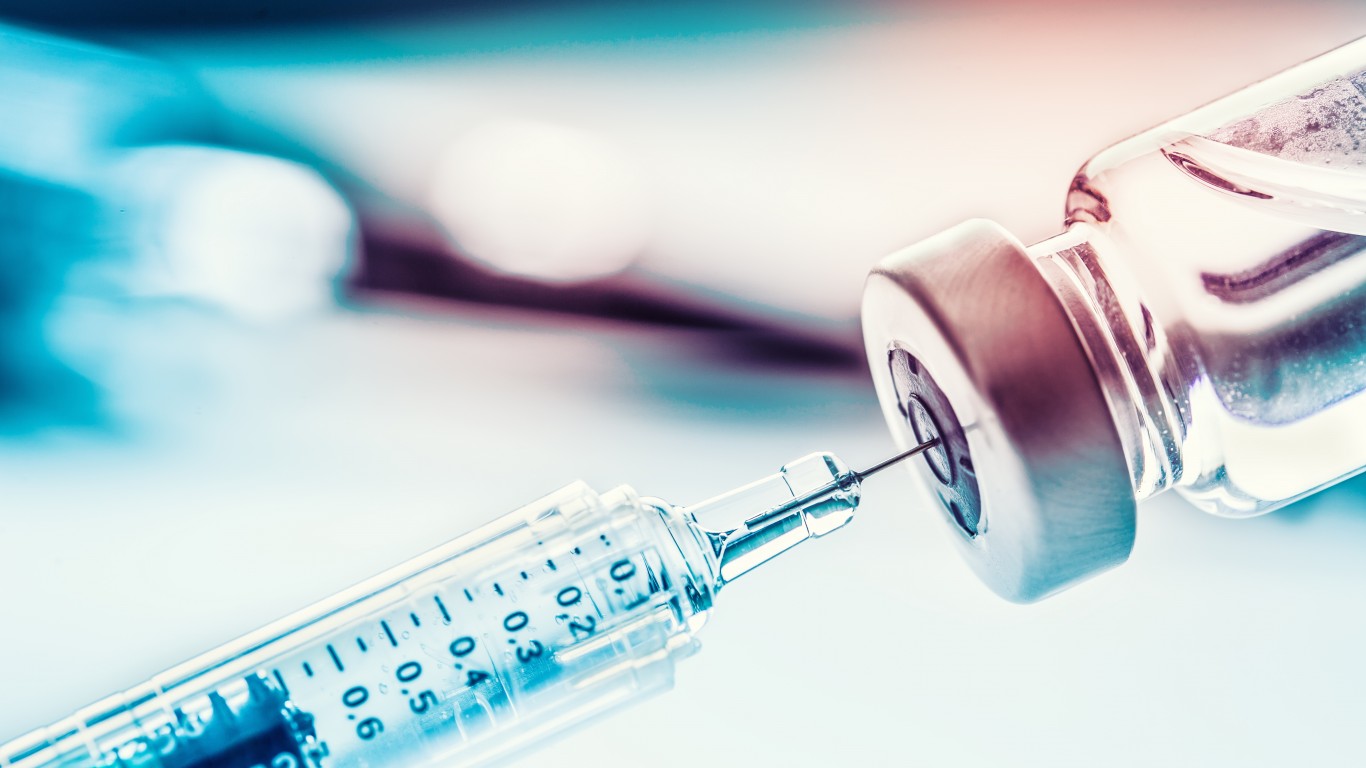
64. Lipid injection
> Use: Used as a source of calories and essential fatty acids when a patient is unable to eat or should not eat.

65. Lithium oral solution
> Use: Used to treat manic episodes of bipolar disorder and as maintenance treatment for bipolar disorder.

66. Lorazepam injection
> Use: Used to treat anxiety and certain types of seizures. It is also used as a sedative before surgery to relieve anxiety and to block the memory of the procedure.

67. Loxapine capsules
> Use: The antipsychotic medication that is used to treat schizophrenia.
[in-text-ad-2]
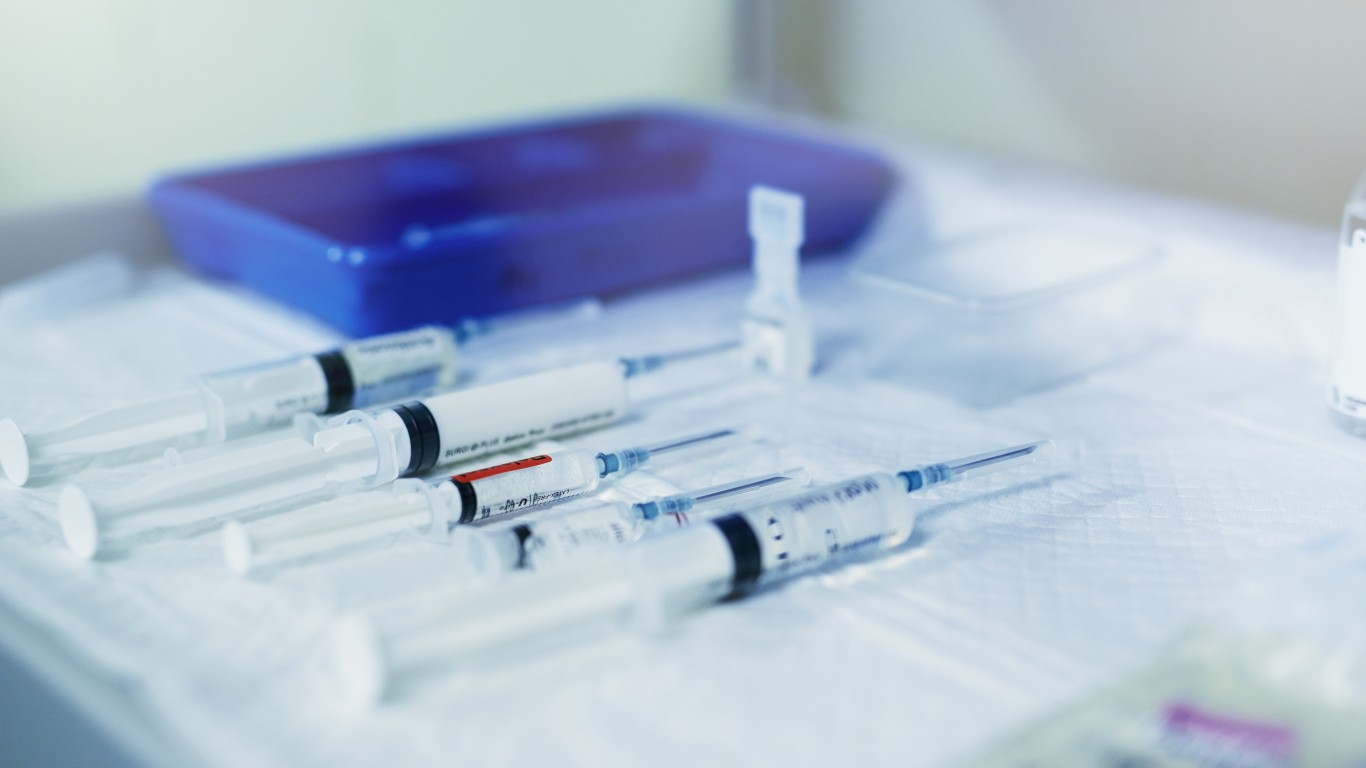
68. Mannitol injection
> Use: The diuretic is used to reduce swelling and pressure inside the eye or around the brain. It is also used to prevent or treat kidney failure and during some urology procedures.
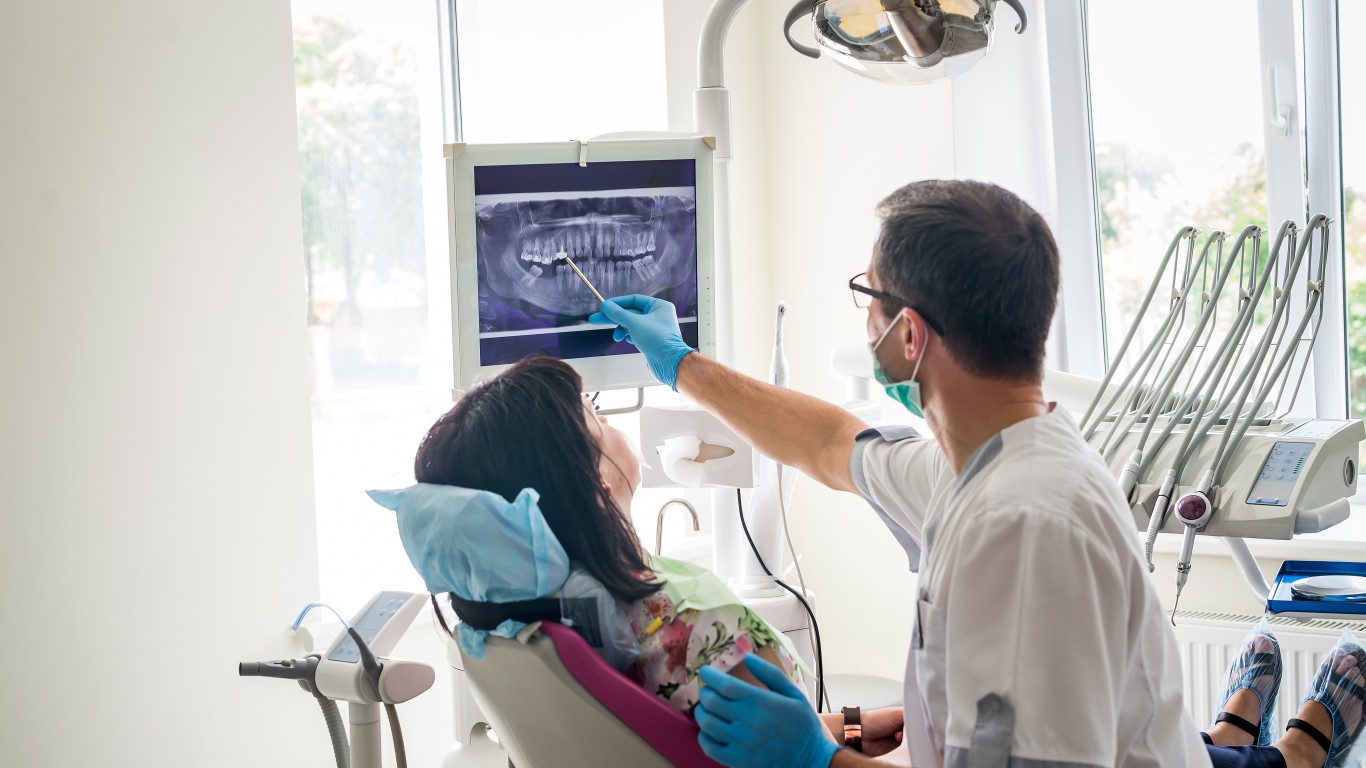
69. Mepivacaine hydrochloride injection
> Use: Used as a local anesthesia during dental procedures. It is also used as an epidural.
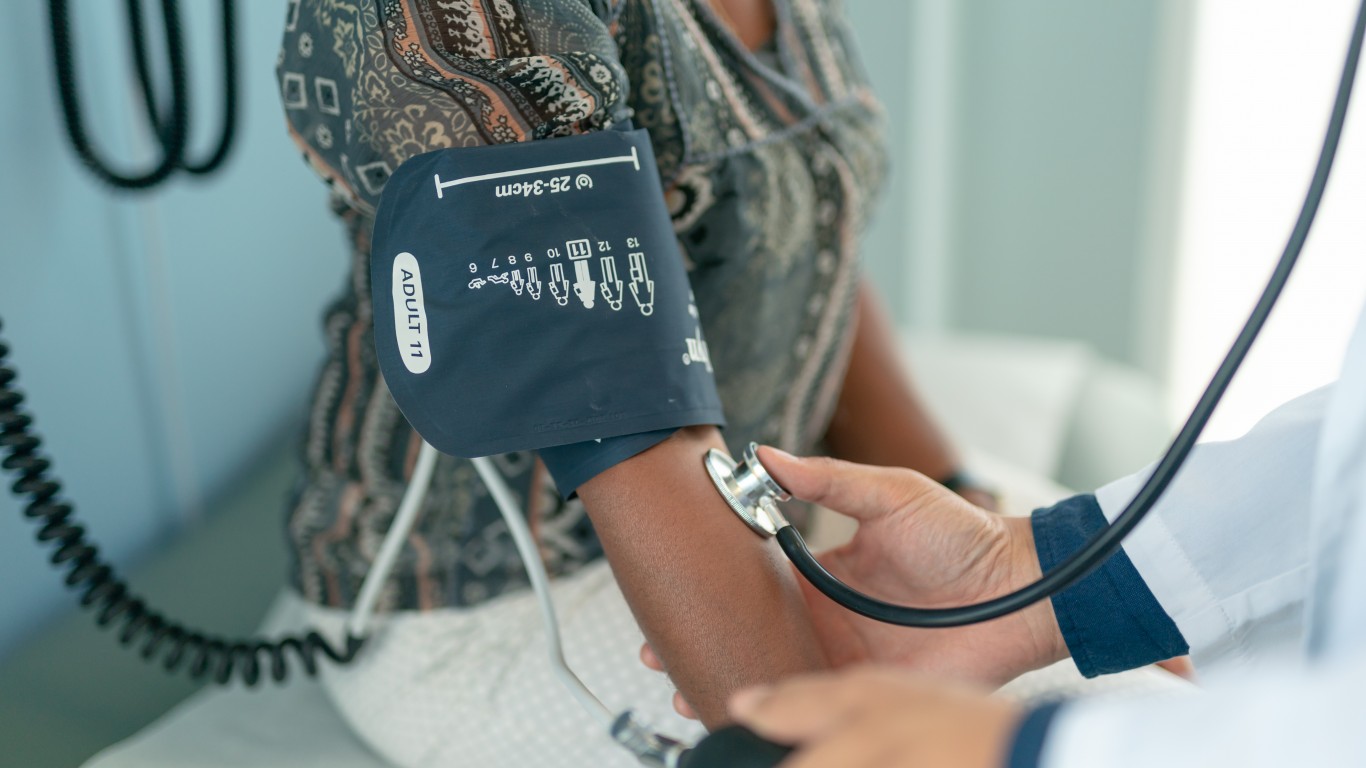
70. Methyldopa tablets
> Use: Used to treat hypertension (high blood pressure).

71. Methylprednisolone acetate injection
> Use: The anti-inflammatory drug provides relief to inflamed areas of the body. It is used for different conditions, including severe allergic reactions, arthritis, skin conditions, gastrointestinal diseases, and others.
[in-text-ad]

72. Midazolam injection
> Use: Used as a sedative and anesthesia before medical procedures and surgeries to relieve anxiety and block the memory. It is also used in people who are breathing with the help of a machine. It is also used to treat seizures.

73. Misoprostol tablets
> Use: Used to prevent ulcers in people who take certain medicines, including aspirin and NSAIDs. It protects the stomach lining by decreasing stomach acid secretion.

74. Morphine sulfate injection
> Use: This opiate analgesic is used to relieve moderate to severe pain in patients who don’t respond to non-narcotic meds. It may also be used during surgery.

75. Multi-Vitamin infusion (adult and pediatric)
> Use: This combination of vitamins is used as a vitamin supplement and to prevent vitamin deficiency.

76. Nefazodone hydrochloride tablets
> Use: Used to treat depression, including major depressive disorder.

77. Nizatidine capsules
> Use: This antihistamine blocks stomach acid and is used to treat and prevent ulcers. It is also used to treat heartburn, indigestion, or sour stomach.
[in-text-ad-2]

78. Ondansetron hydrochloride injection
> Use: Used to prevent nausea and vomiting caused by cancer chemotherapy, radiation, and surgery.

79. Paclitaxel injection (protein-bound particles)
> Use: Used for the treatment of metastatic breast cancer, after failure of combination chemotherapy; metastatic pancreatic cancer as first-line treatment; and for locally advanced or metastatic non-small cell lung cancer as first-line treatment.

80. Pantoprazole sodium for injection
> Use: Used as a short-term treatment for GERD in people with damage to their esophagus who are unable to take pantoprazole by mouth. It is also used to treat conditions where the stomach produces too much acid, such as Zollinger-Ellison syndrome.

81. Parathyroid hormone (Natpara) injection
> Use: This medication is a parathyroid hormone (PTH) used with calcium and vitamin D to control low blood calcium in people with hypoparathyroidism. It is also used in people who do not respond well to other treatments.
[in-text-ad]

82. Physostigmine salicylate injection
> Use: Used as an antidote used to reverse the effect on the central nervous system caused by drugs that cause anticholinergic syndrome.

83. Pindolol tablets
> Use: The beta-blocker affects the heart and circulation and is used to treat high blood pressure.

84. Potassium acetate injection
> Use: Used to treat or prevent low potassium levels in patients with restricted or no oral intake.
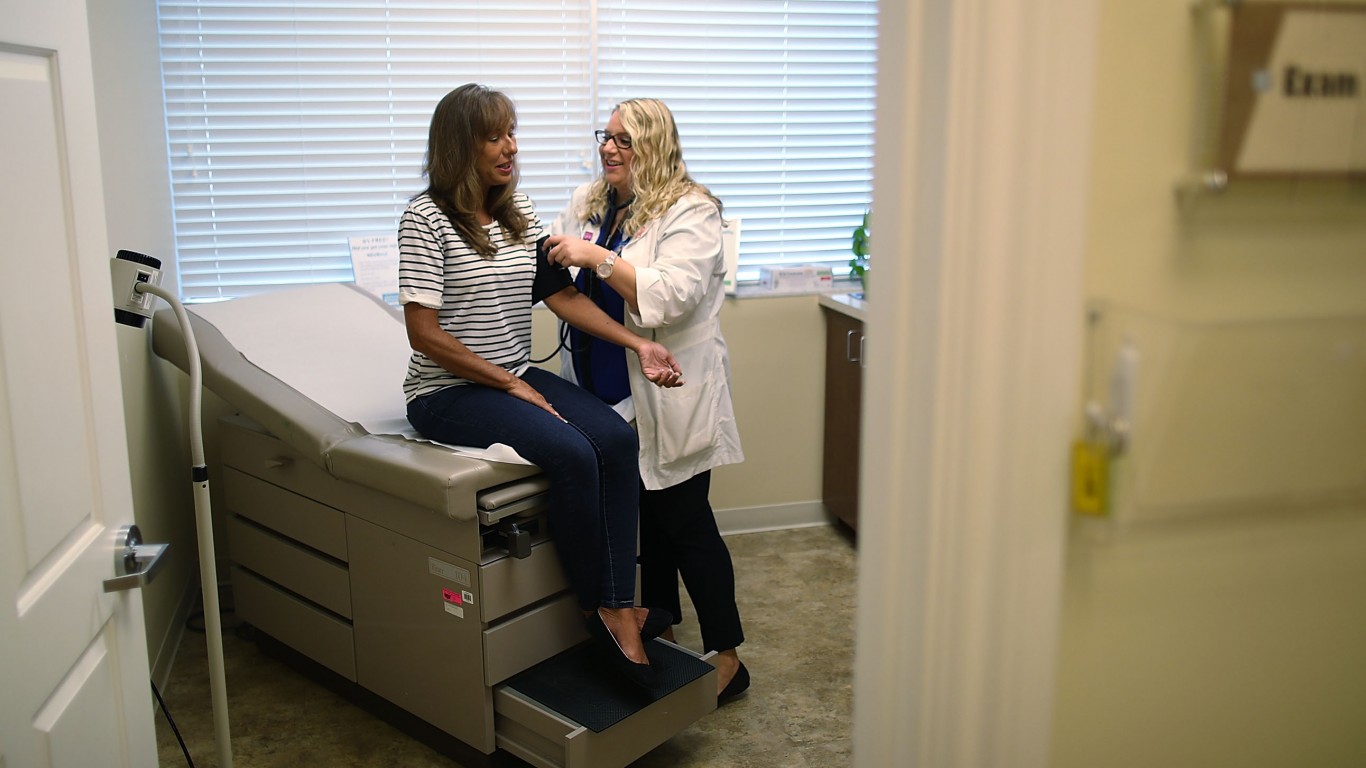
85. Potassium chloride concentrate injection
> Use: Used in the treatment of potassium deficiency states when oral replacement is not feasible. This concentrated version is used in fluid restricted patients.

86. Promethazine (Phenergan) injection
> Use: The antihistamine is used to relieve or prevent some types of allergy or allergic reactions. It is also used to stop nausea and vomiting, and for sedation before surgery.

87. Propofol injectable emulsion
> Use: This general anesthetic and sedation drug can be used to initiate and maintain monitored anesthesia care sedation; to induce and maintain general anesthesia; and for the sedation of intubated, mechanically ventilated patients.
[in-text-ad-2]

88. Protamine sulfate injection
> Use: The antidote is used to treat the symptoms of heparin overdosage.

89. Rifampin capsules
> Use: This antibiotic is used to prevent and treat tuberculosis and other bacterial infections.

90. Rifampin injection
> Use: This antibiotic is used to prevent and treat tuberculosis. It is also used to prevent infection of other people in those who have a bacteria that can cause meningitis but have yet to develop symptoms.

91. Rifapentine tablets
> Use: This antibiotic is used with other medications to treat active tuberculosis in the lungs. Rifapentine is also used with other drugs to prevent active TB in patients with latent TB.
[in-text-ad]

92. Ropivacaine hydrochloride injection
> Use: The local anesthetic is used during surgery or to ease labor pains. It is also used to relieve acute pain.

93. Sclerosol intrapleural aerosol
> Use: Used to prevent malignant pleural effusions — when a cancer causes abnormal collection of fluid in the space between the lung and chest wall — from coming back.

94. Sincalide (Kinevac) lyophilized powder for injection
> Use: May be used to stimulate gallbladder contraction or pancreatic secretion during diagnostic tests, or to obtain a related sample. It is also used to decrease radiation associated with fluoroscopy and x-ray examination of the intestinal tract.

95. Sodium acetate injection
> Use: Used as a source of sodium in patients with low sodium and restricted or no oral intake.

96. Sodium bicarbonate injection
> Use: Indicated in the treatment of metabolic acidosis (when the body produces too much acid), which may occur due to several conditions. It is also used in the treatment of certain drug intoxications and in severe diarrhea.

97. Sodium chloride 0.9% injection bags
> Use: Used to replace lost body fluids and salts. Other medicines which are given by injection or by drip may be diluted with Sodium Chloride 0.9% Injection. It can also be used as a sterile irrigation solution.
[in-text-ad-2]

98. Sodium chloride 23.4% injection
> Use: Used to replenish lost water and salt in the body due to certain conditions. It is also used as an additive for total parenteral nutrition and carbohydrate containing IV fluids.

99. Sodium chloride injection usp, 0.9% vials and syringes
> Use: Indicated for diluting or dissolving drugs for intravenous, intramuscular or subcutaneous injection, according to manufacturer’s instructions.
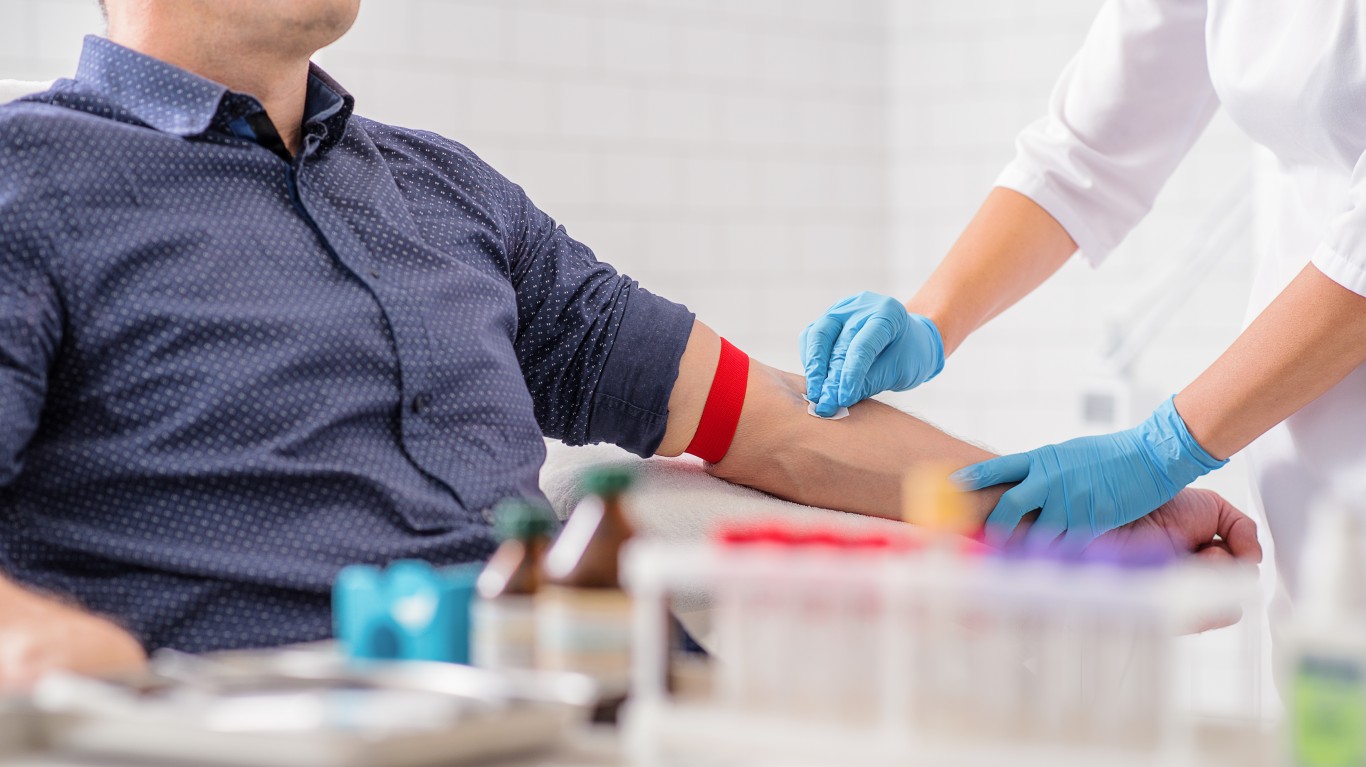
100. Sodium phosphates injection
> Use: Used to treat or prevent low phosphate levels.

101. Sterile water for injection
> Use: used in the aseptic preparation of parenteral solutions — diluting or dissolving drugs for intravenous, intramuscular, or subcutaneous injection.
[in-text-ad]

102. Sulfasalazine tablets
> Use: Used to treat and prevent attacks of ulcerative colitis. Also used to certain types of rheumatoid arthritis if other medications didn’t work.

103. Tacrolimus capsules
> Use: This immunosuppressant is used with other medications to prevent rejection of a kidney, heart, lung, or liver transplant.
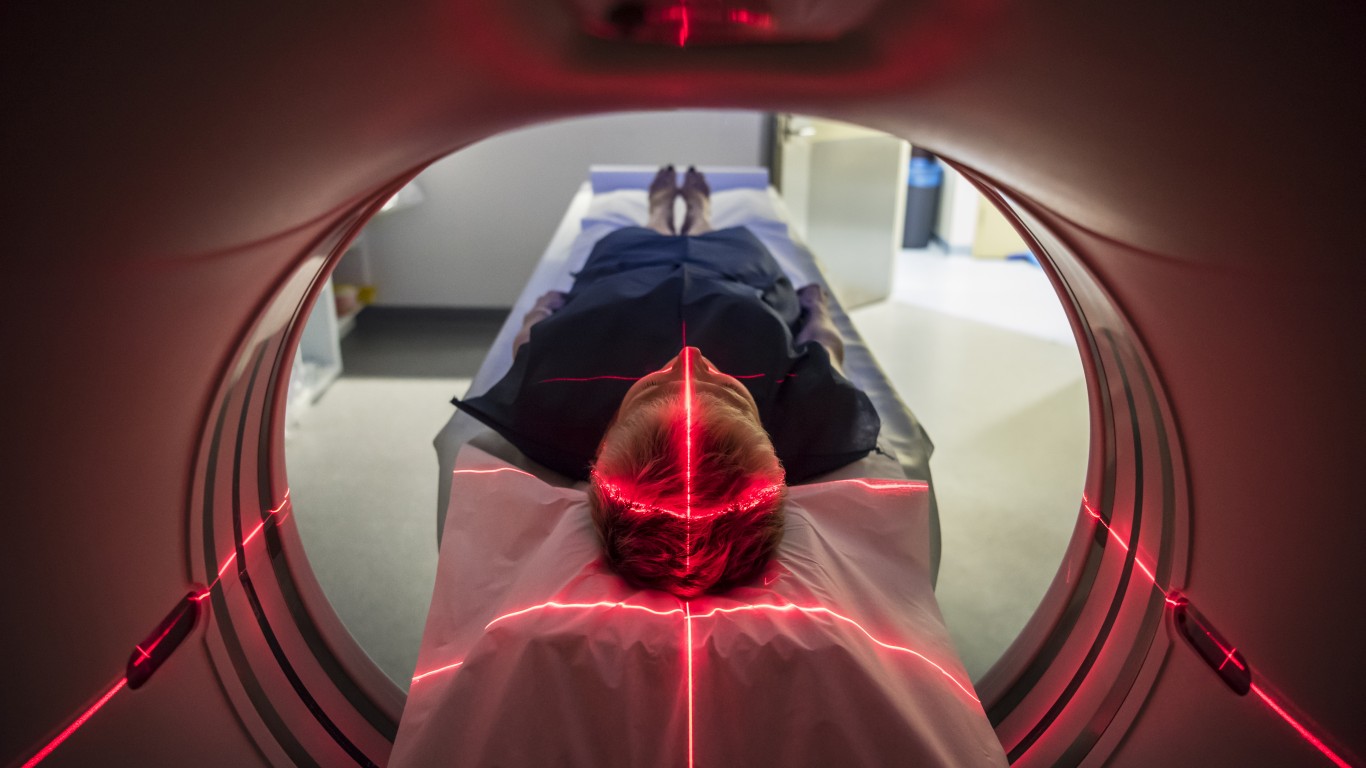
104. Technetium tc 99m sulfur colloid injection
> Use: This radiopharmaceutical agent is used to find cancer in the body, such as lymph node tumors in breast cancer patients. It can also help evaluate how the liver, spleen, bone marrow, or a peritoneo-venous (LeVeen) shunt are working.

105. Technetium tc99m succimer injection (DMSA)
> Use: This radiopharmaceutical is used to diagnose certain kidney problems.

106. Teprotumumab-trbw
> Use: This monoclonal antibody is used to treat thyroid eye disease (a disorder in which the immune system causes inflammation and swelling behind the eye).

107. Thiothixene capsules
> Use: Used to treat the symptoms of schizophrenia.
[in-text-ad-2]

108. Tocilizumab injection
> Use: Used alone or in combination with other medications to relieve the symptoms of certain types of arthritis and other conditions, including juvenile idiopathic arthritis, giant cell arteritis, and cytokine release syndrome.

109. Triamcinolone acetonide injectable suspension
> Use: Used to treat several eye conditions as well as other conditions.

110. Triamcinolone hexacetonide injectable suspension
> Use: This corticosteroid is used in a variety of conditions to reduce inflammation and other effects.

111. Trimethobenzamide hydrochloride capsules
> Use: Used to treat postoperative nausea and vomiting. It is also used to control nausea caused by stomach flu.
[in-text-ad]

112. Valproate sodium injection
> Use: This anticonvulsant is used to treat certain types of seizures (epilepsy). It has several other uses.

113. Varenicline tartrate (Chantix) tablets
> Use: Used as an aid to smoking cessation.

114. Vecuronium bromide for injection
> Use: Used with other drugs as general anesthesia during surgery and to facilitate intubation for mechanical ventilation. Used to relax the skeletal muscles.
[in-text-ad-2]

115. Vitamin a palmitate (Aquasol A) injection
> Use: Used for the treatment of vitamin A deficiency when the oral administration is not feasible as in anorexia, nausea, vomiting, pre- and postoperative conditions, or certain conditions.
Want to Retire Early? Start Here (Sponsor)
Want retirement to come a few years earlier than you’d planned? Or are you ready to retire now, but want an extra set of eyes on your finances?
Now you can speak with up to 3 financial experts in your area for FREE. By simply clicking here you can begin to match with financial professionals who can help you build your plan to retire early. And the best part? The first conversation with them is free.
Click here to match with up to 3 financial pros who would be excited to help you make financial decisions.
Thank you for reading! Have some feedback for us?
Contact the 24/7 Wall St. editorial team.
 24/7 Wall St.
24/7 Wall St.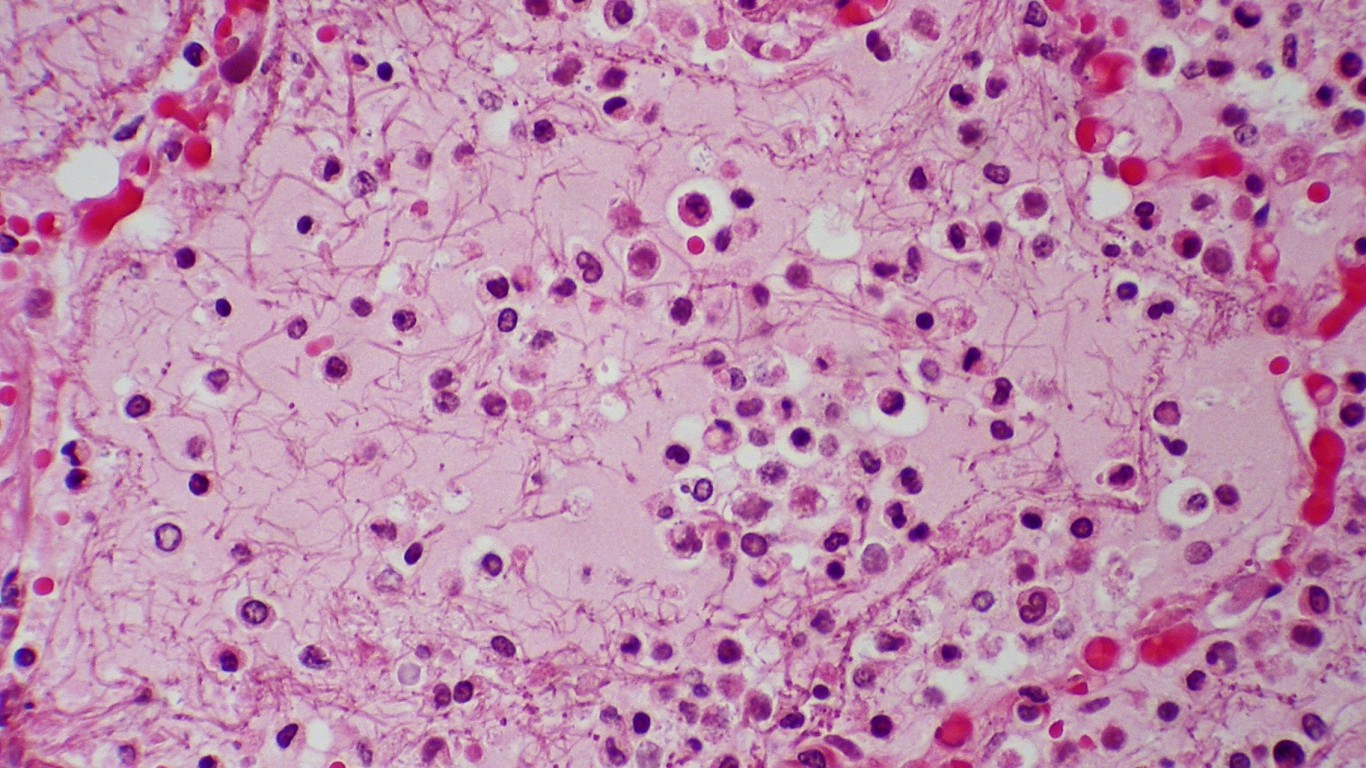
 24/7 Wall St.
24/7 Wall St.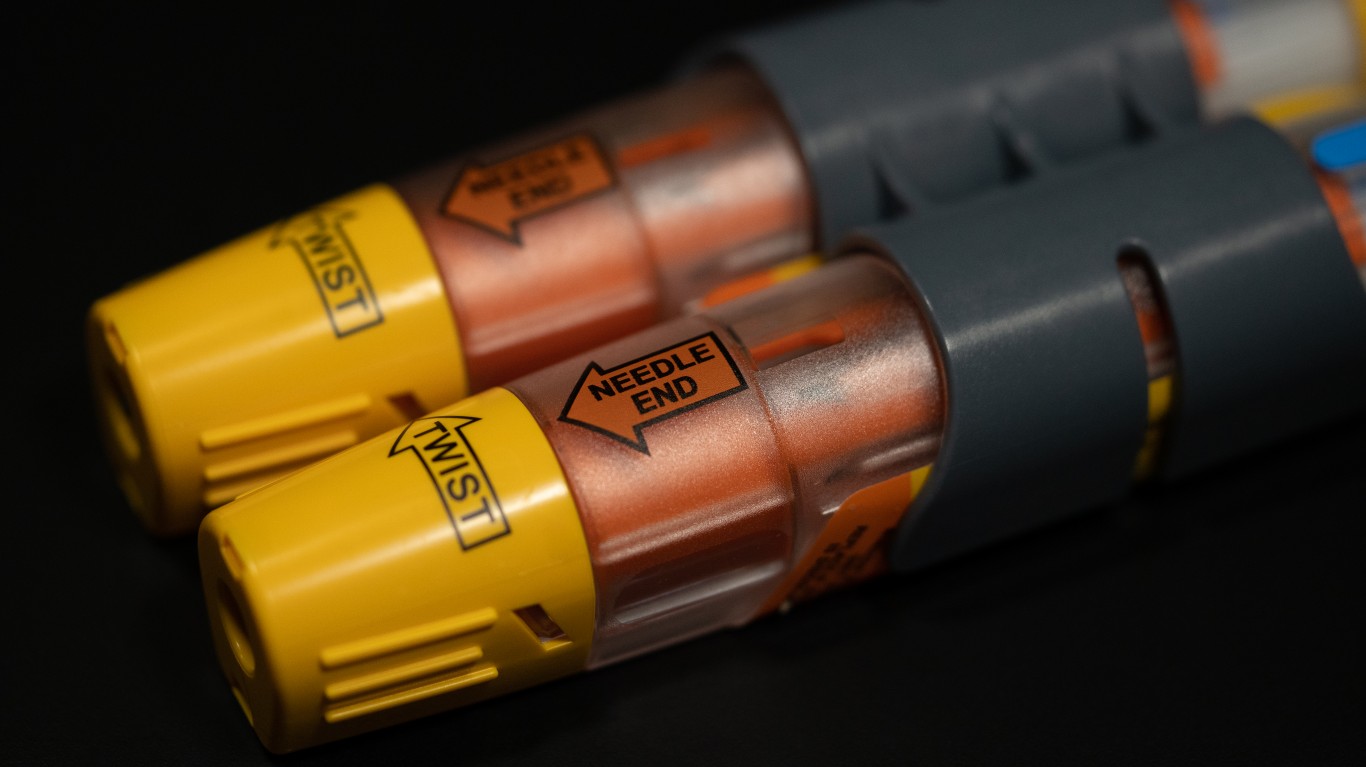
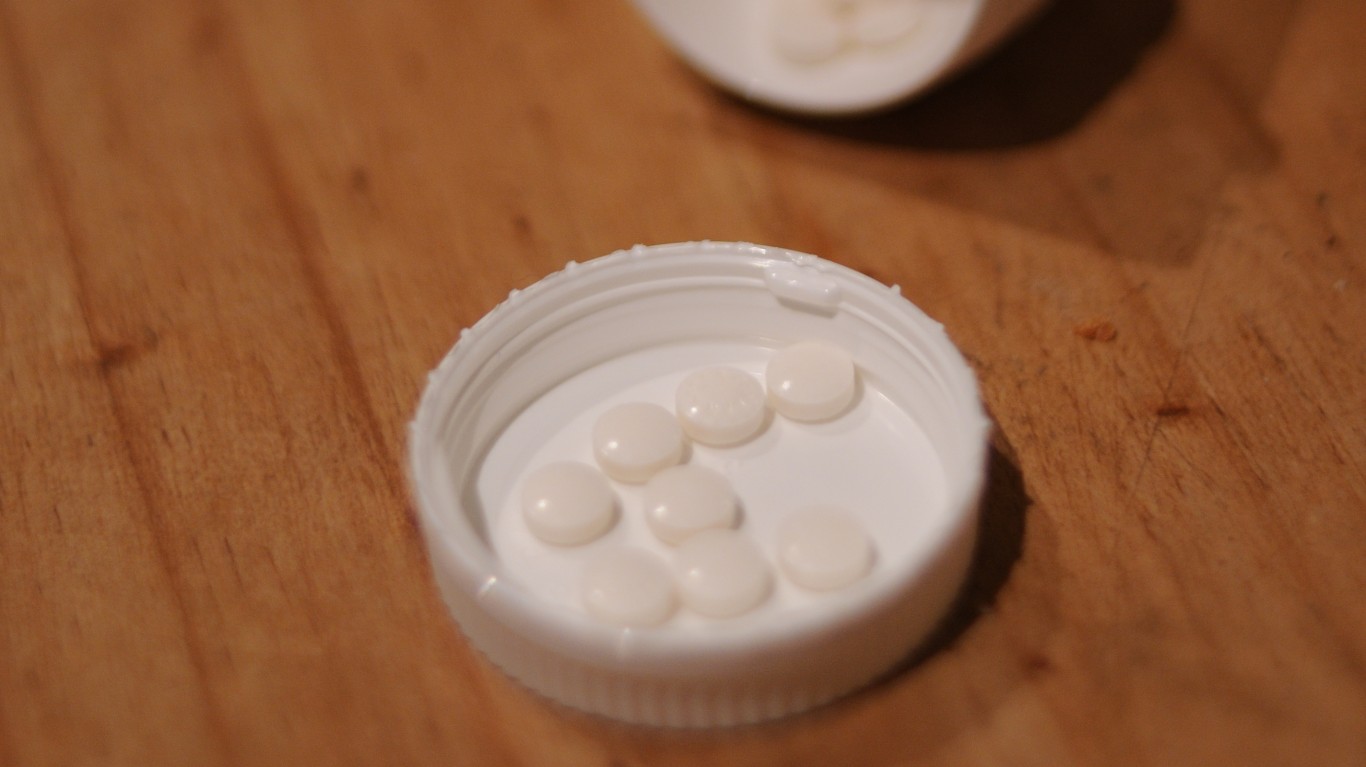
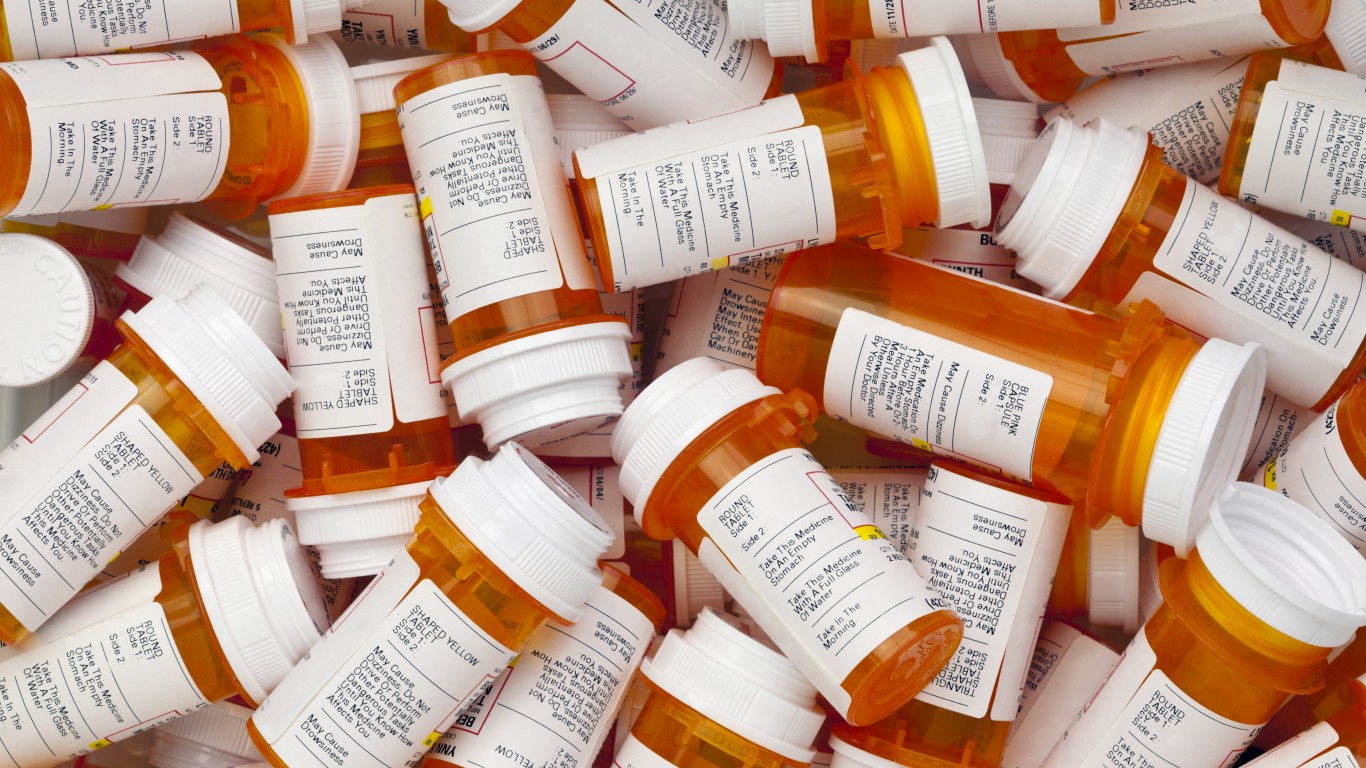 24/7 Wall St.
24/7 Wall St.
